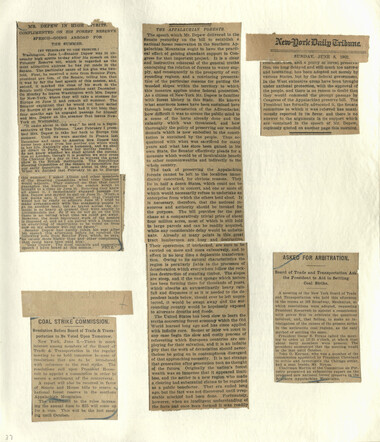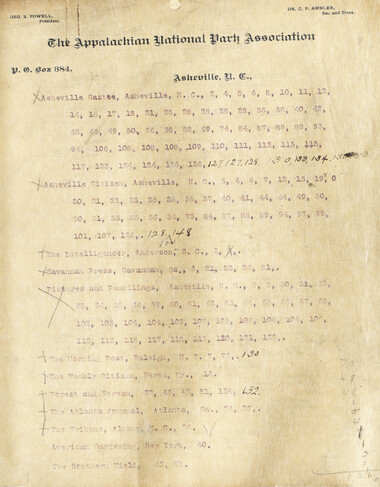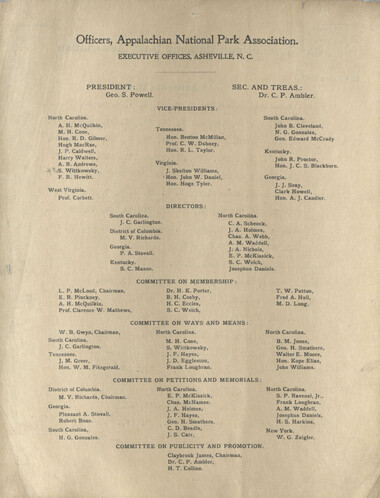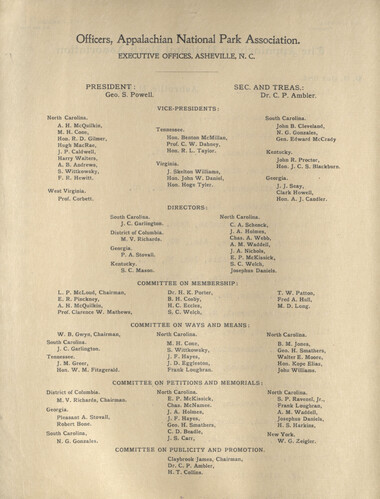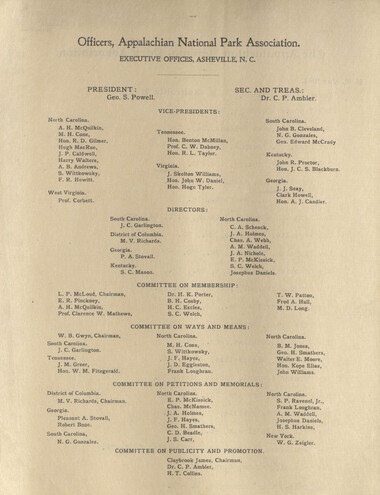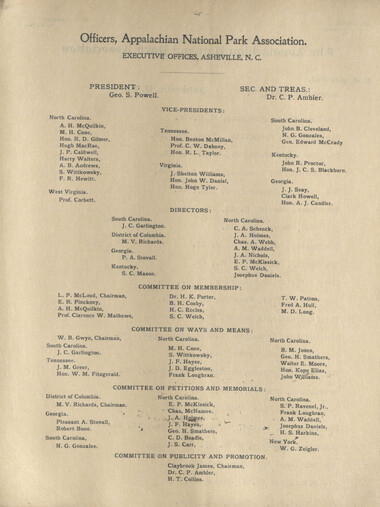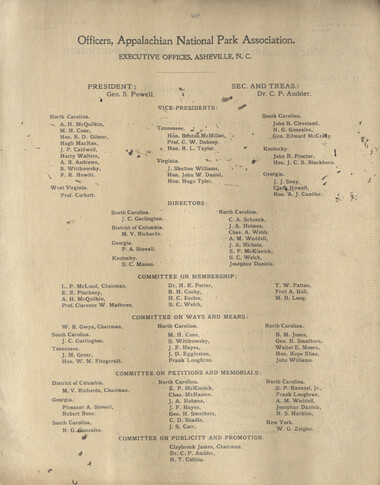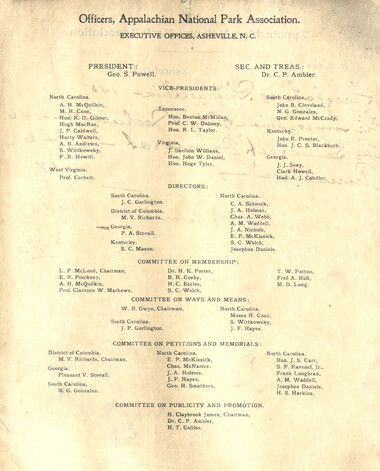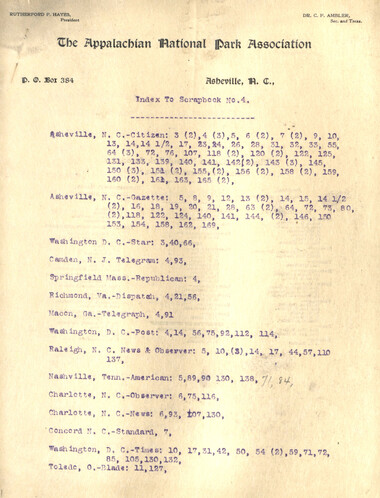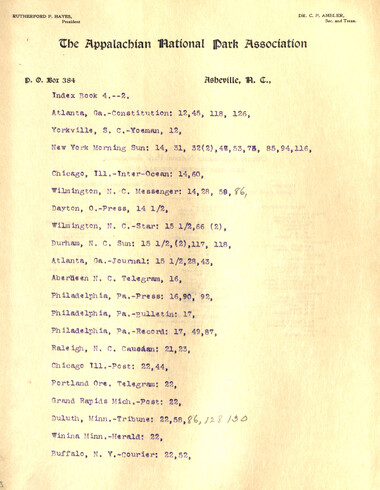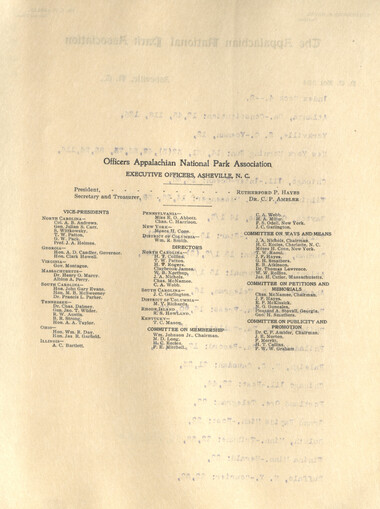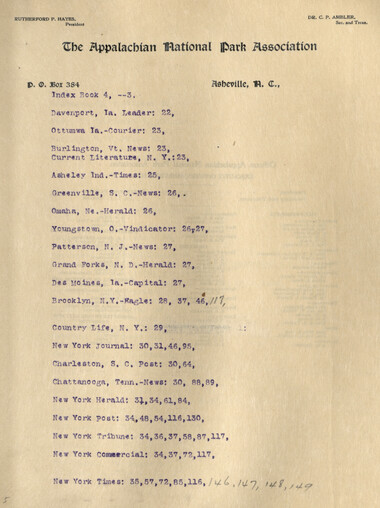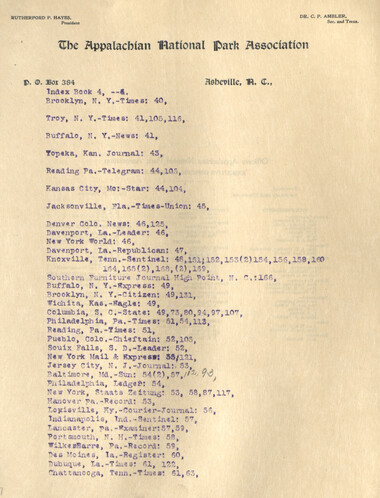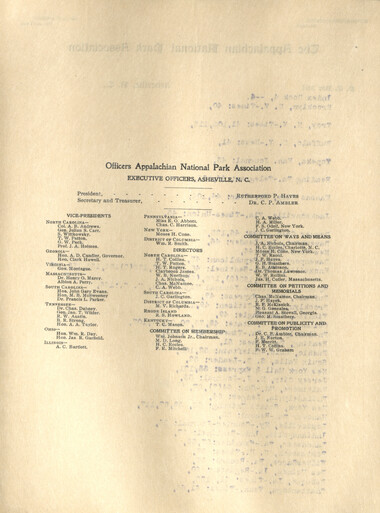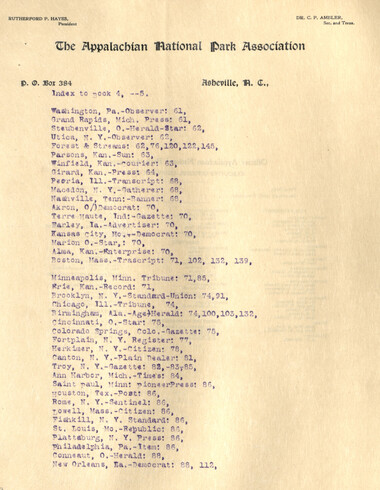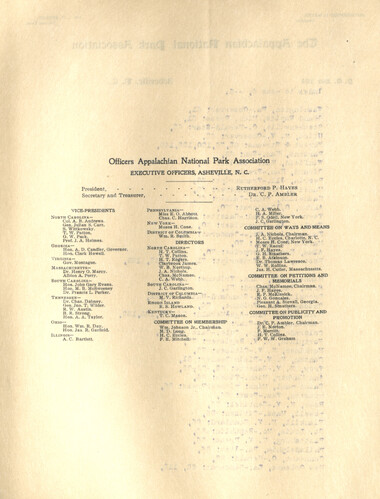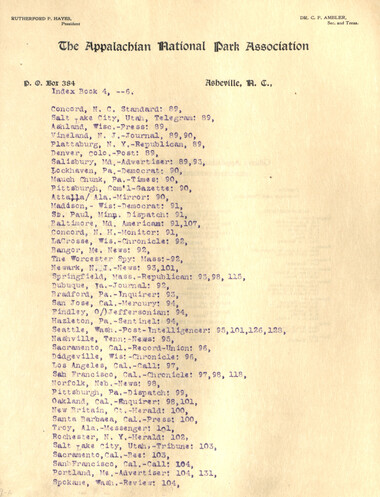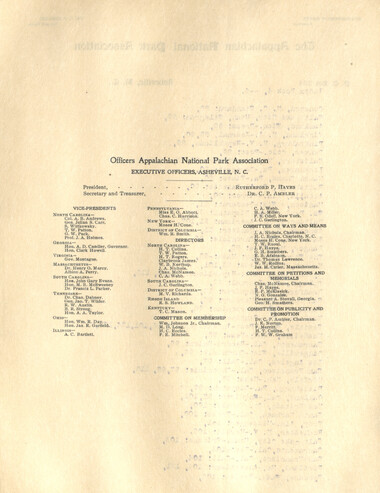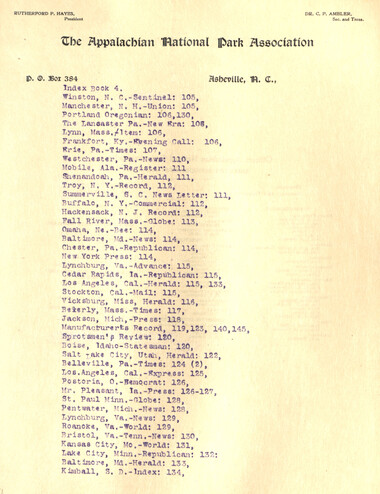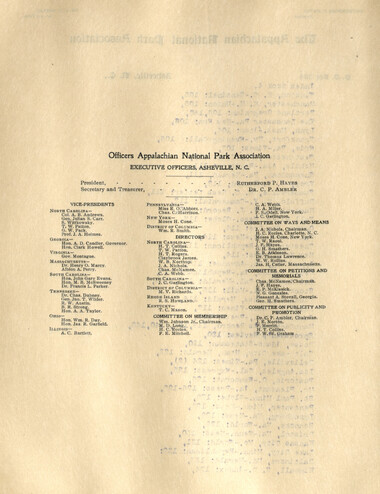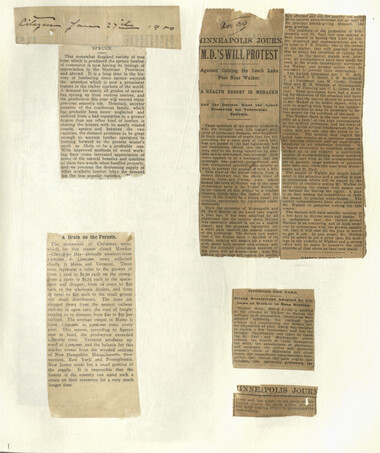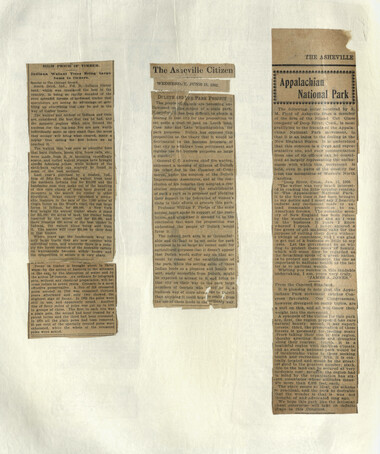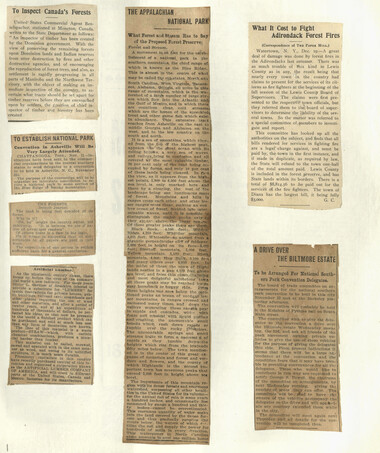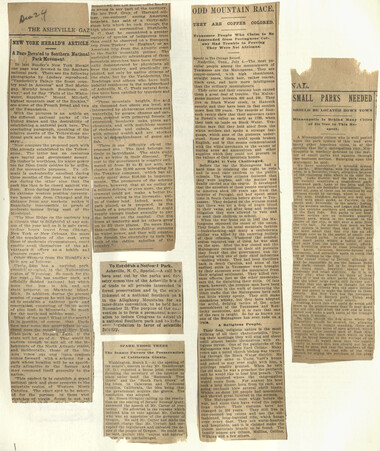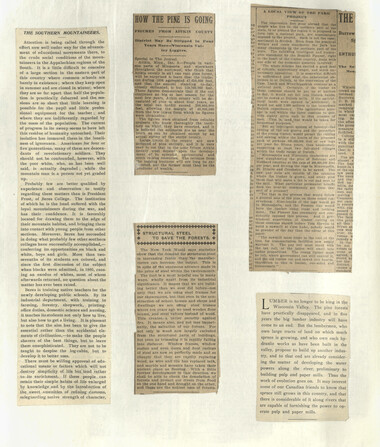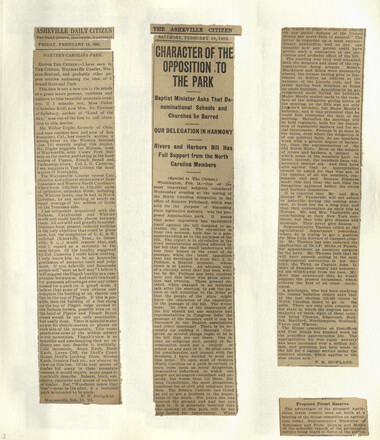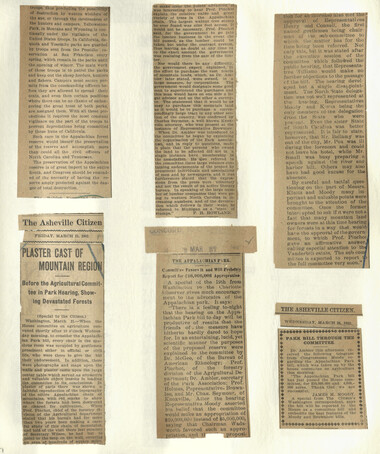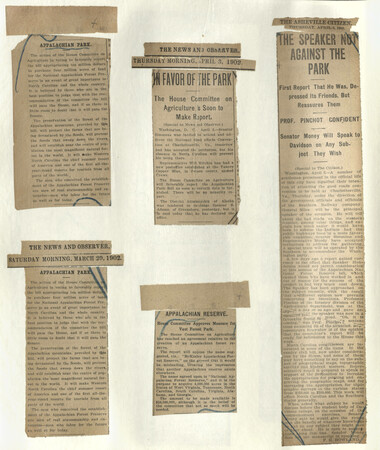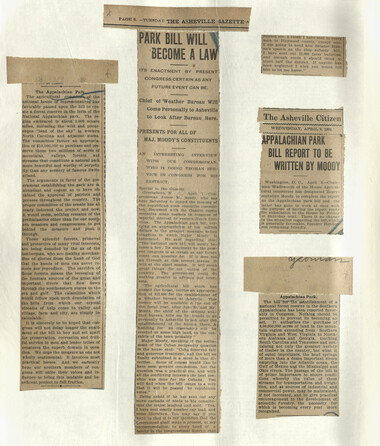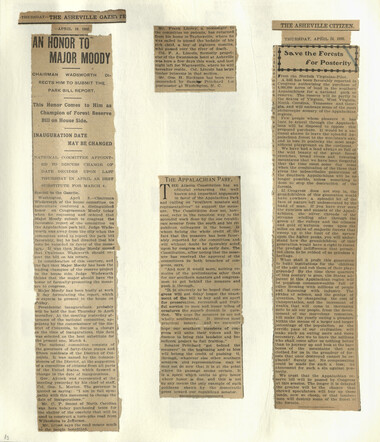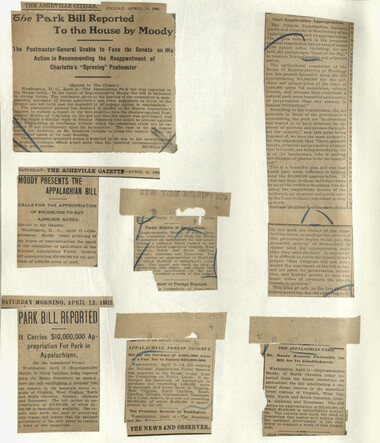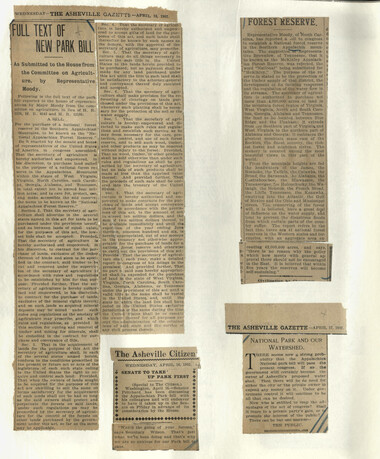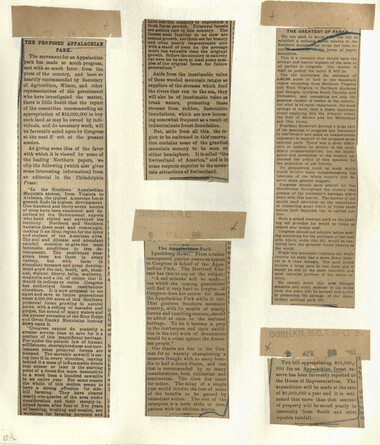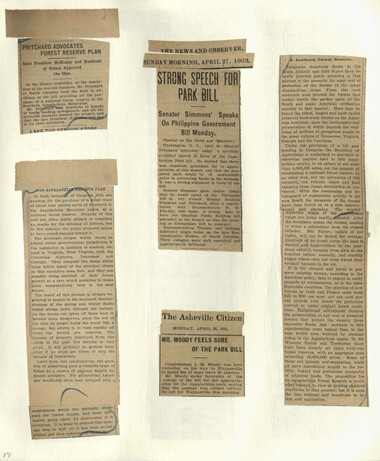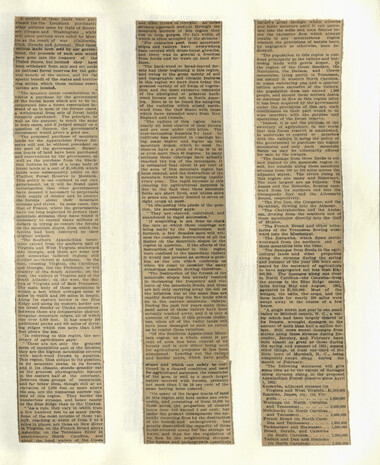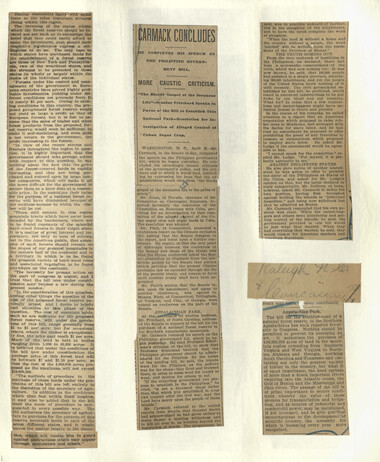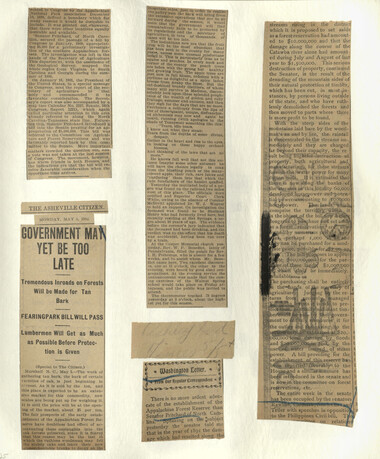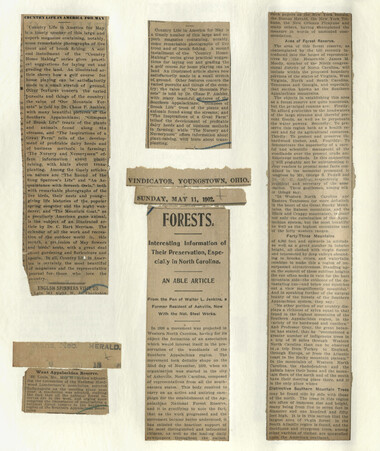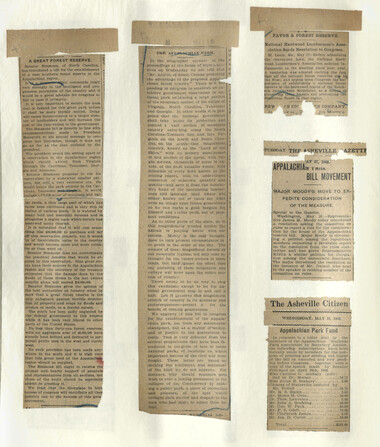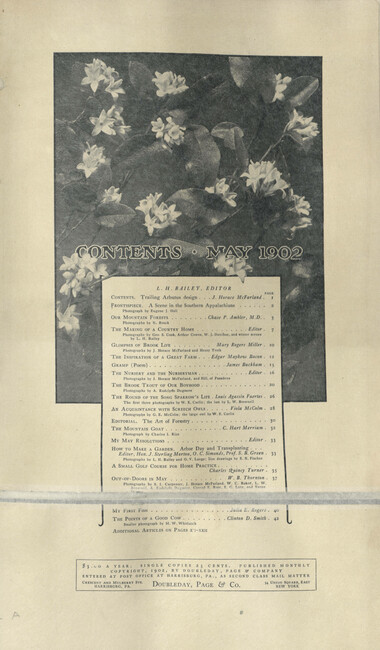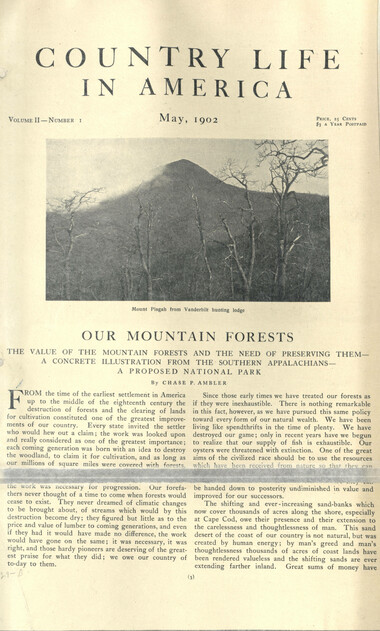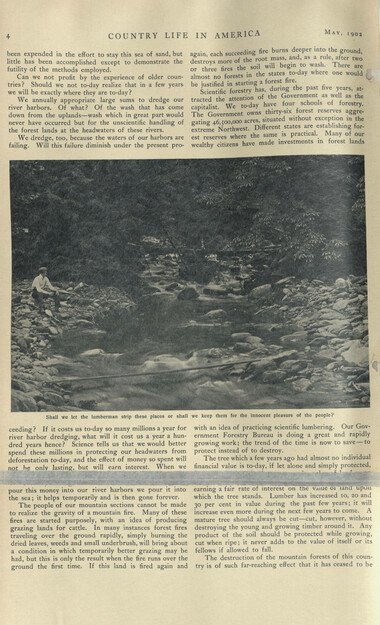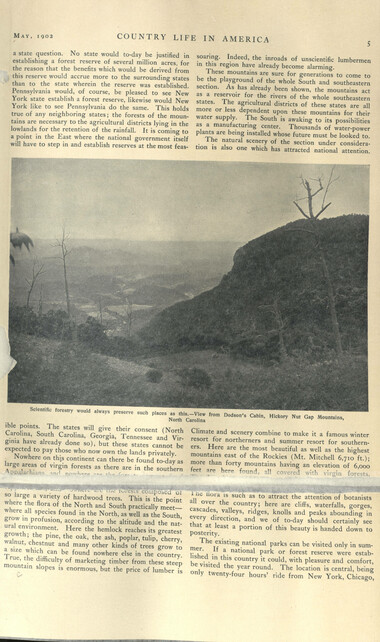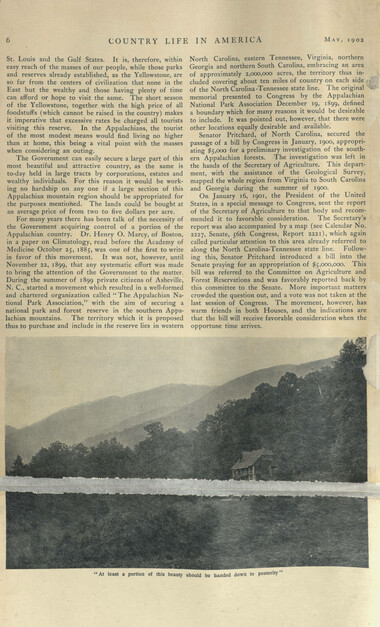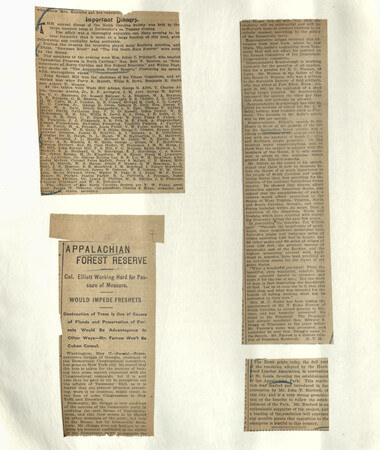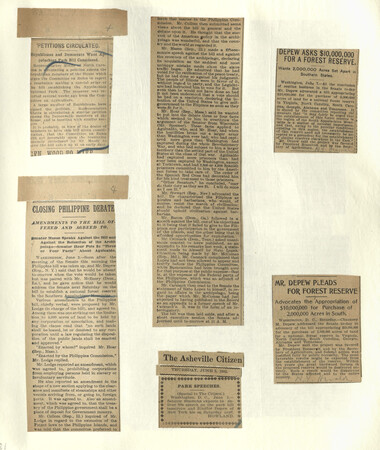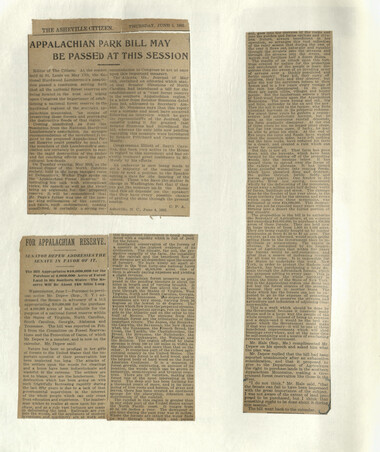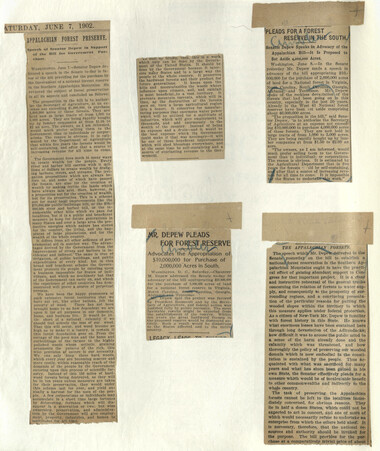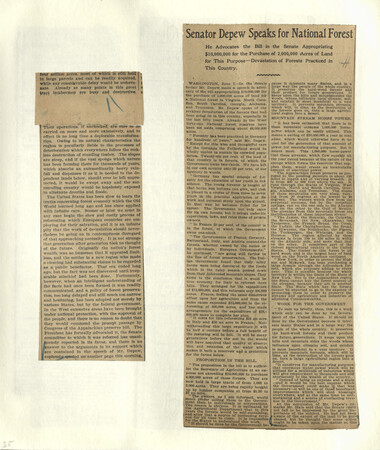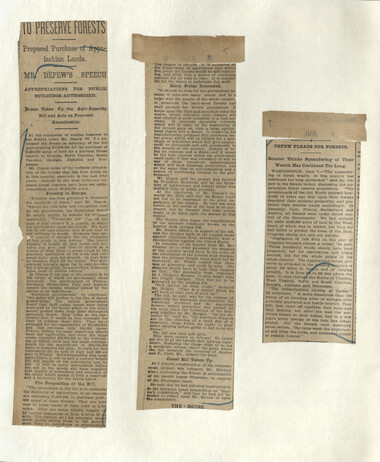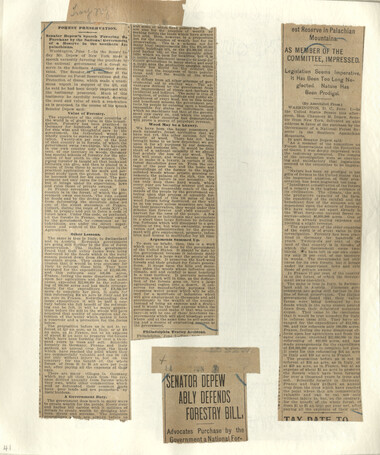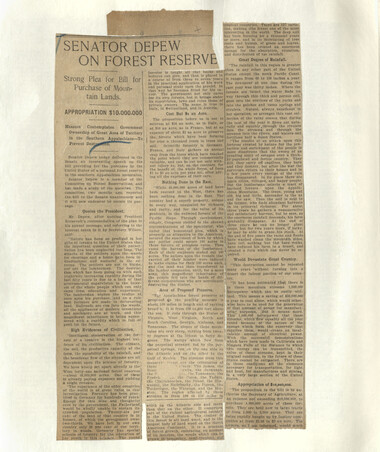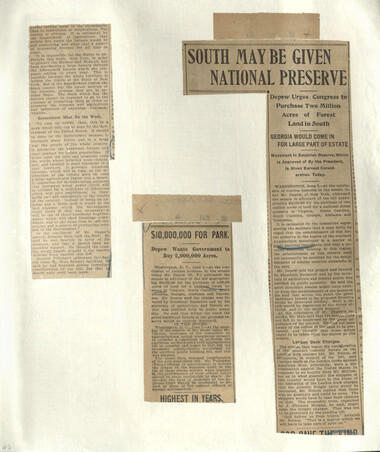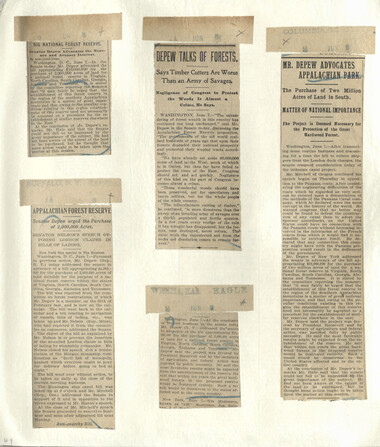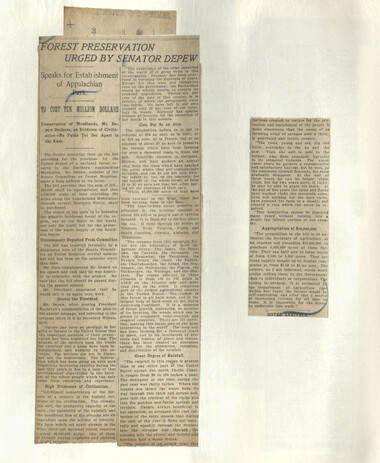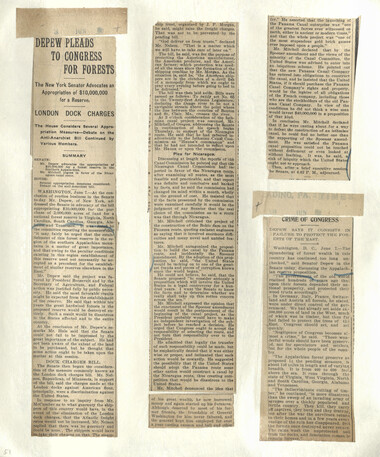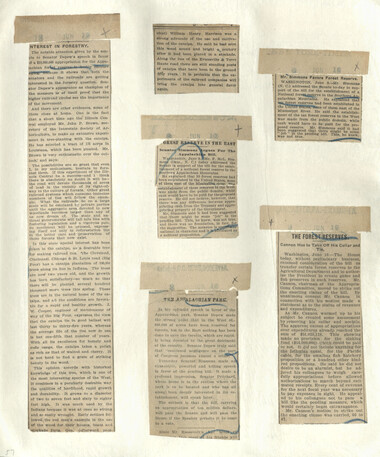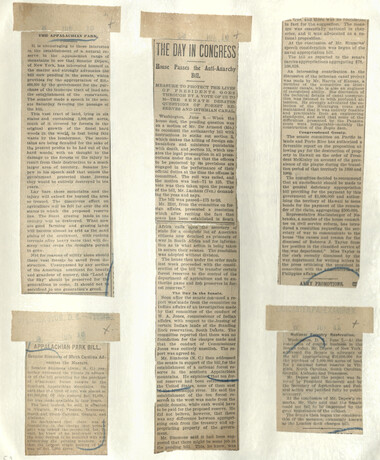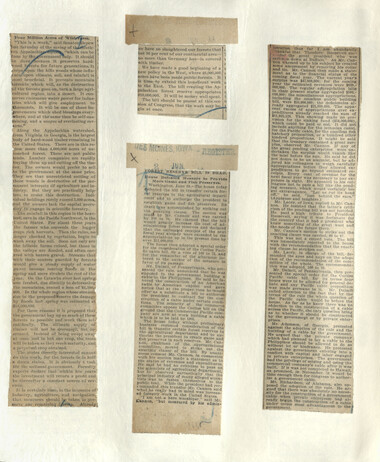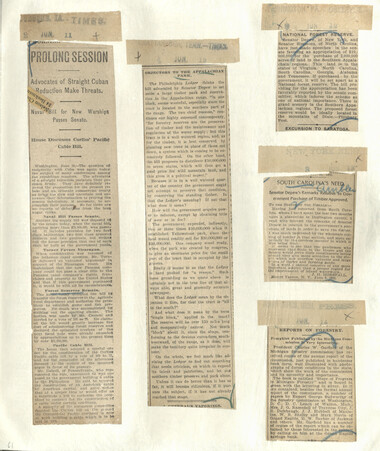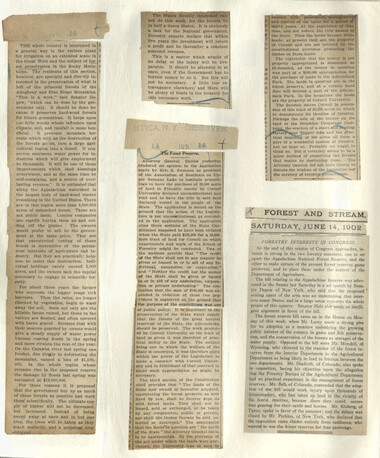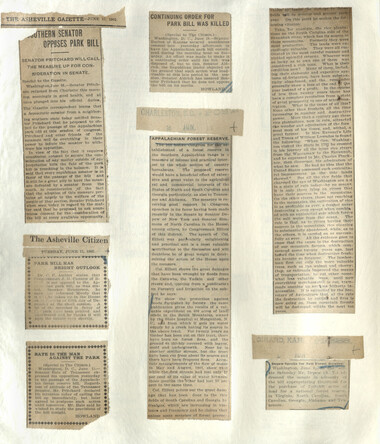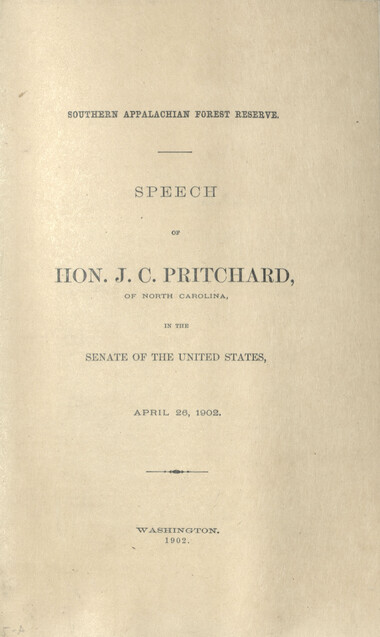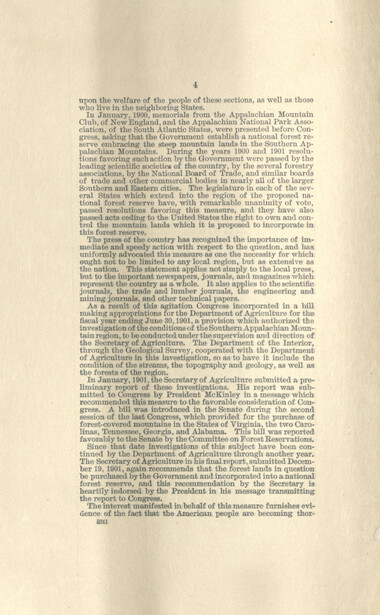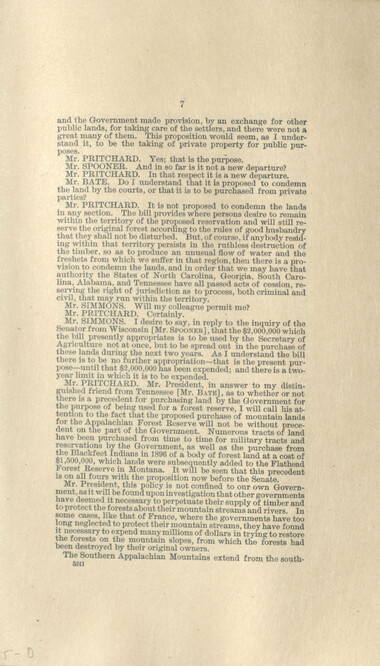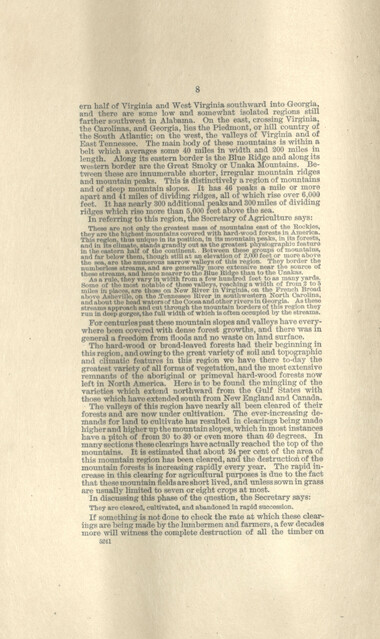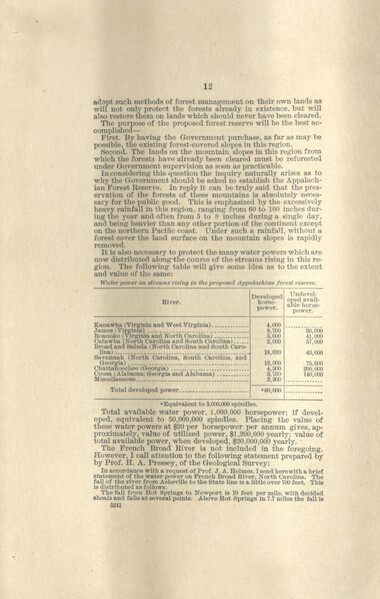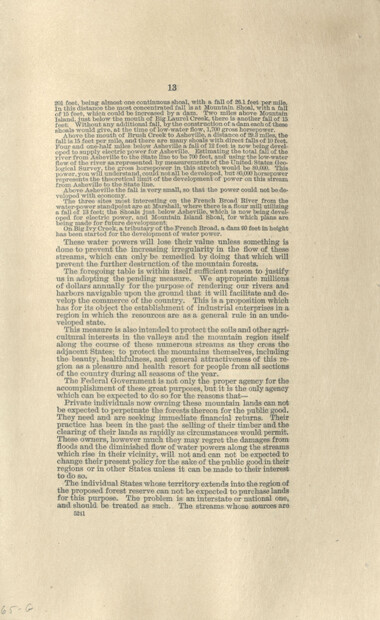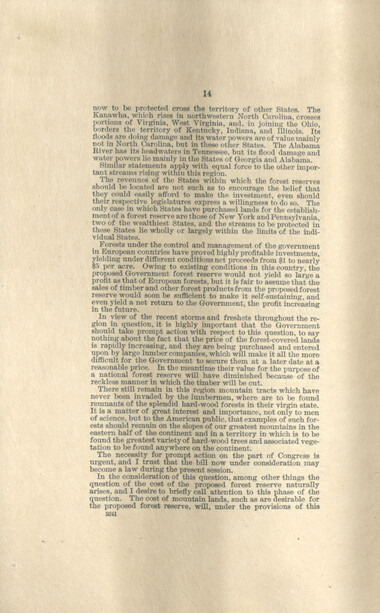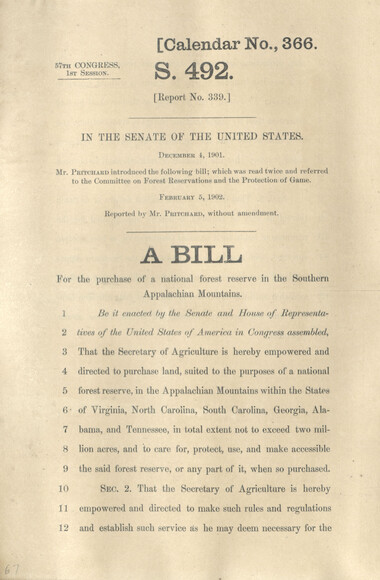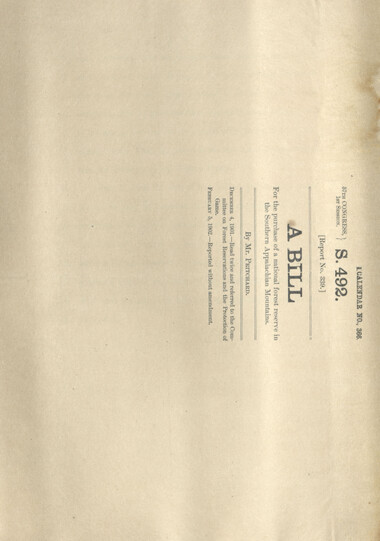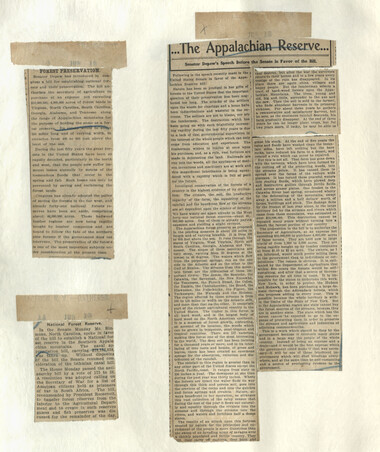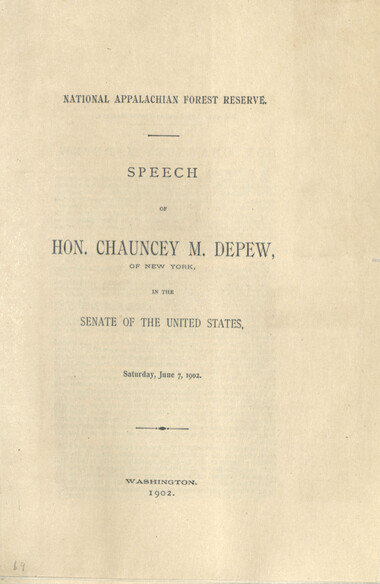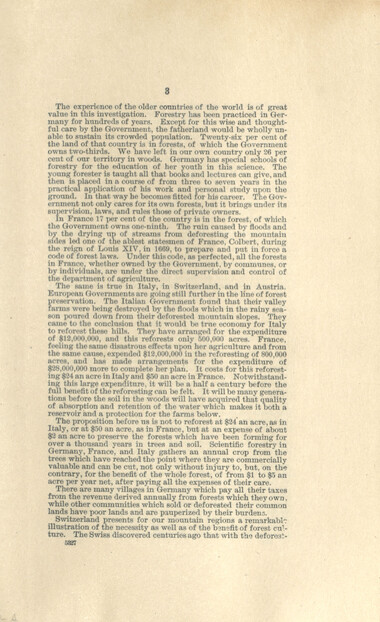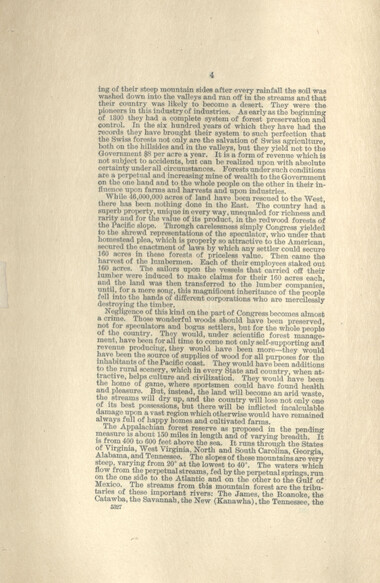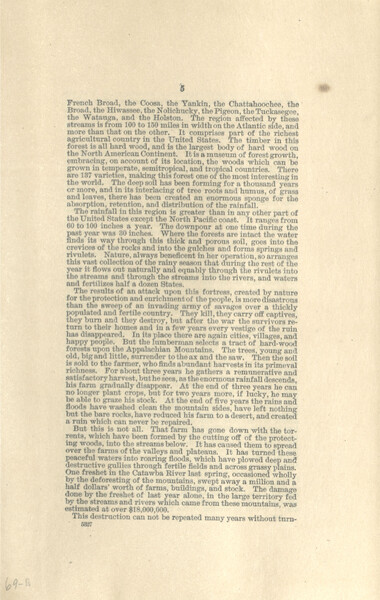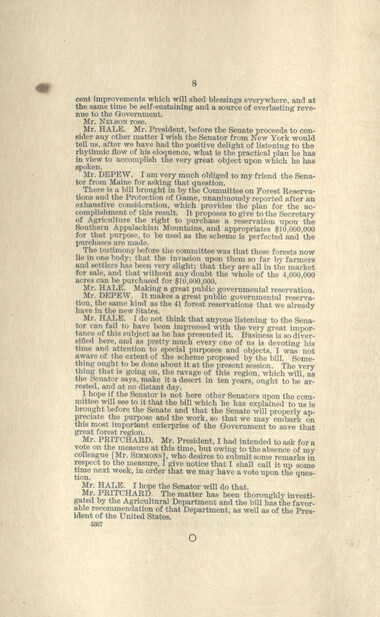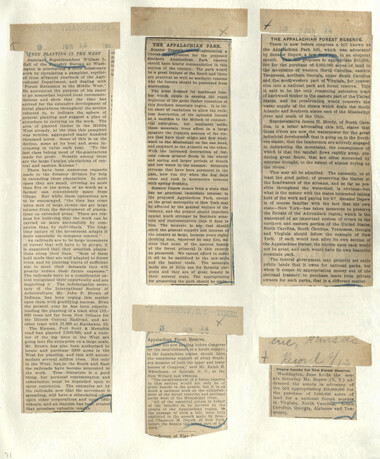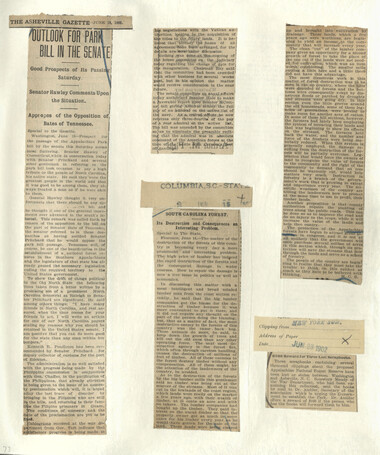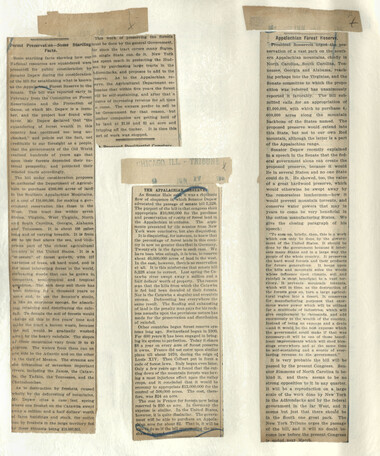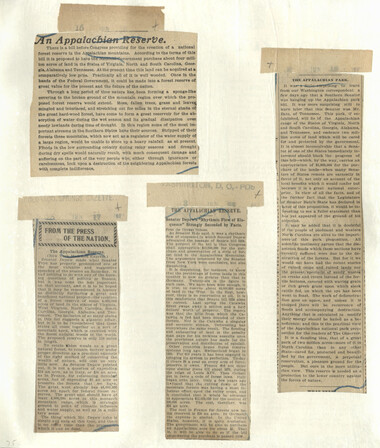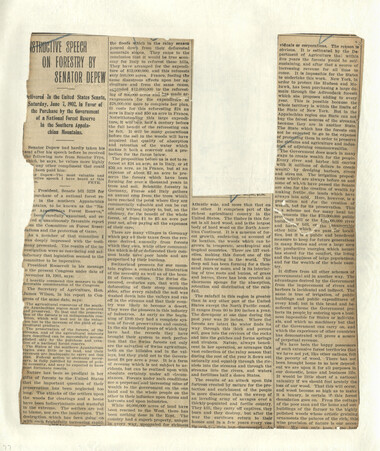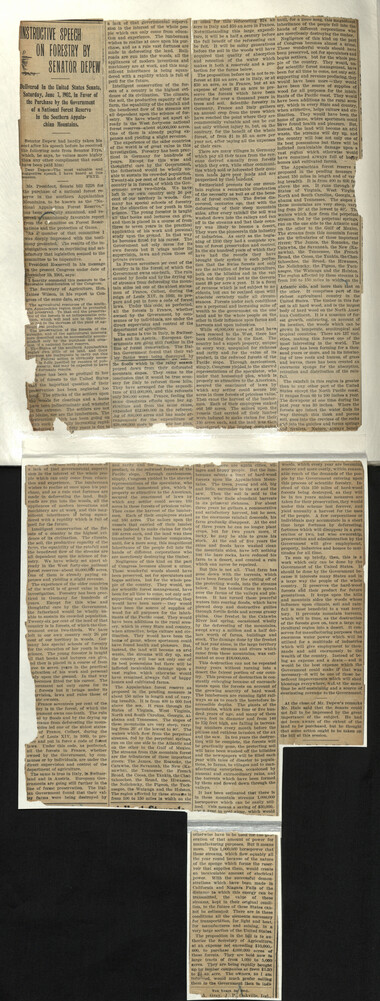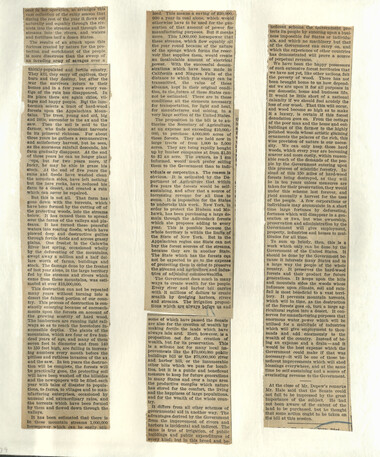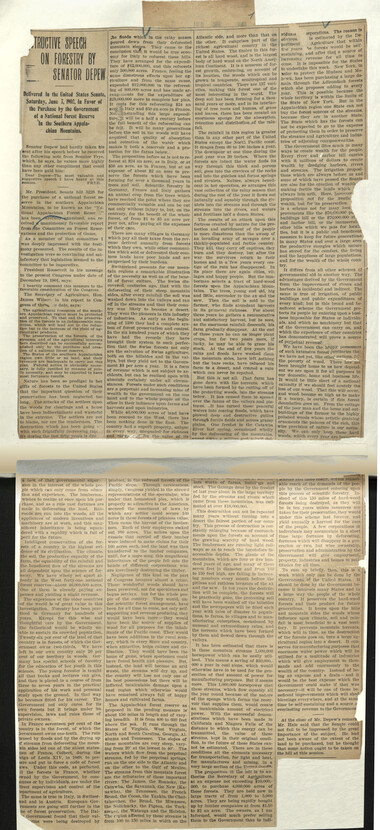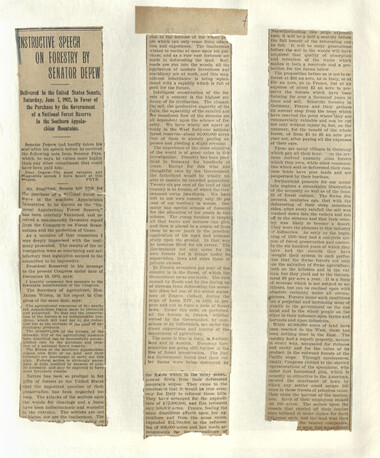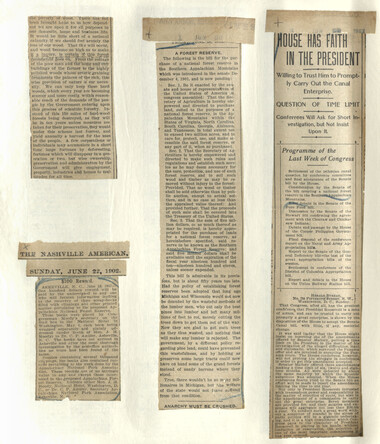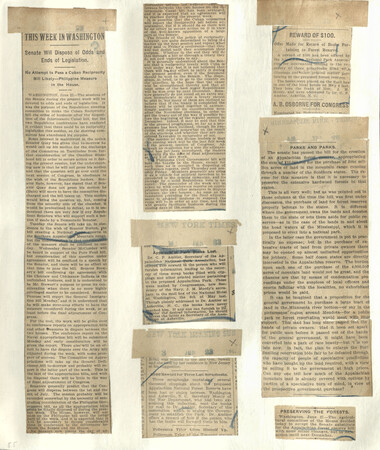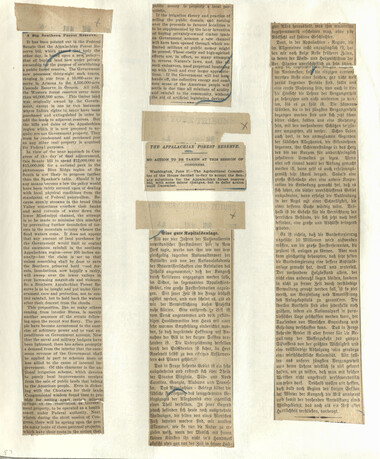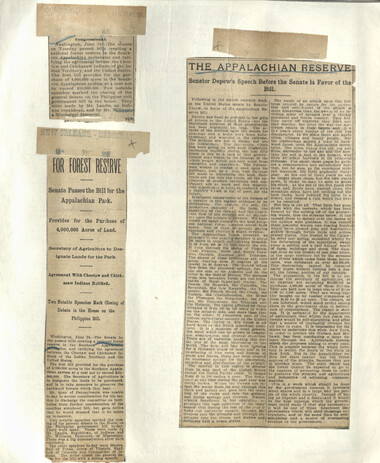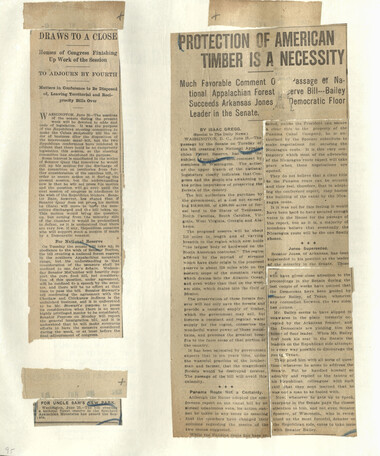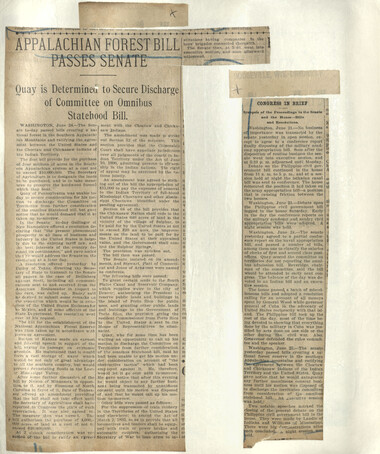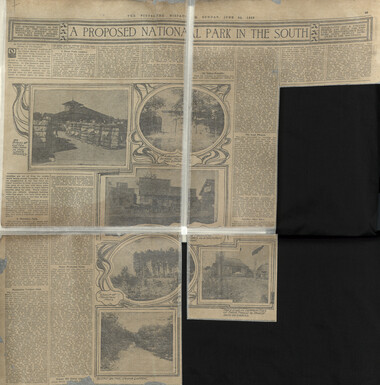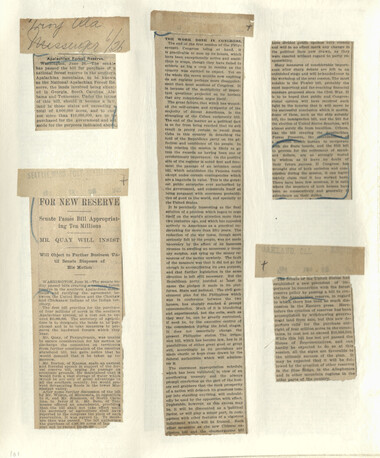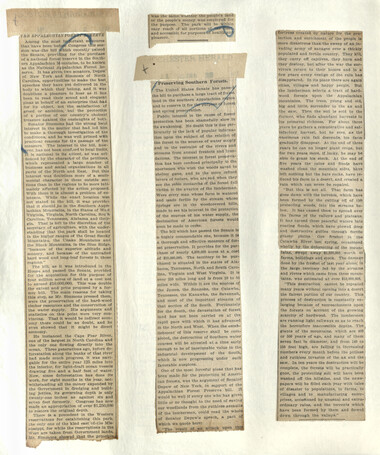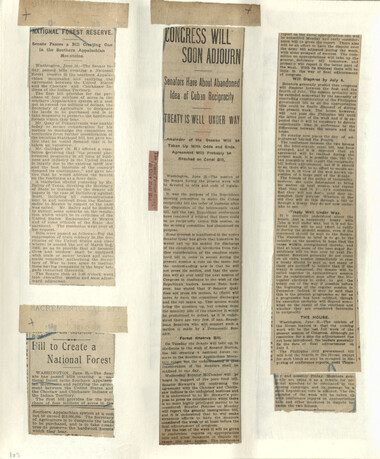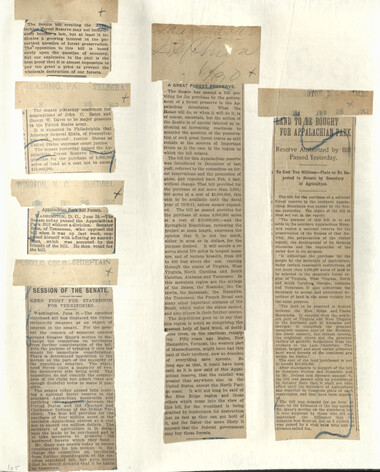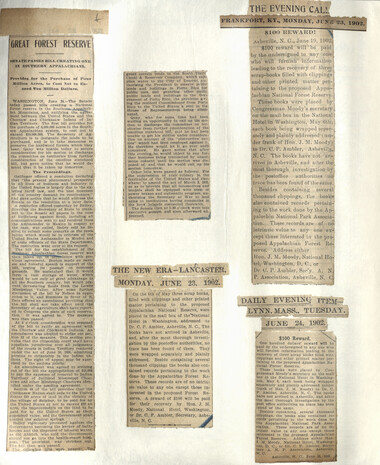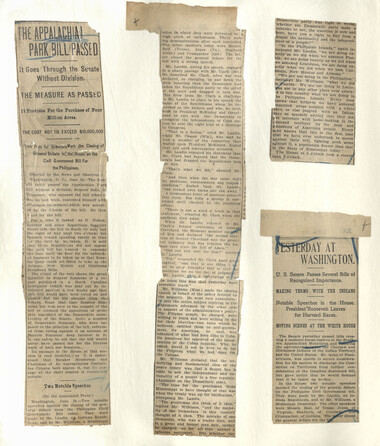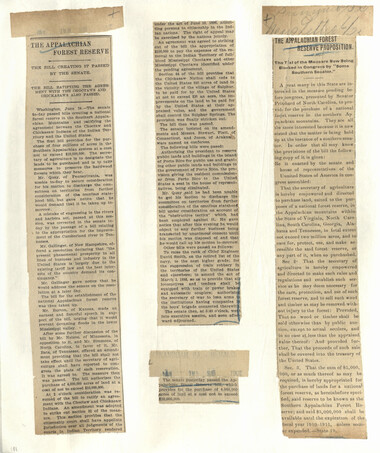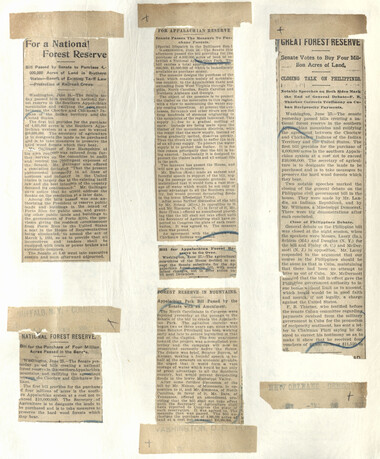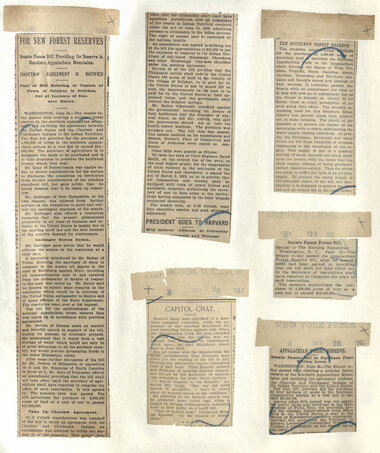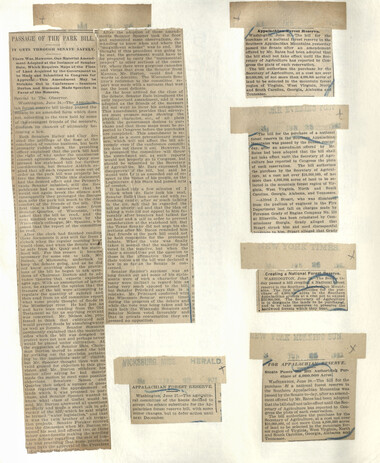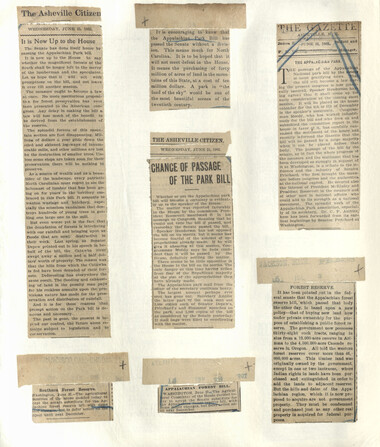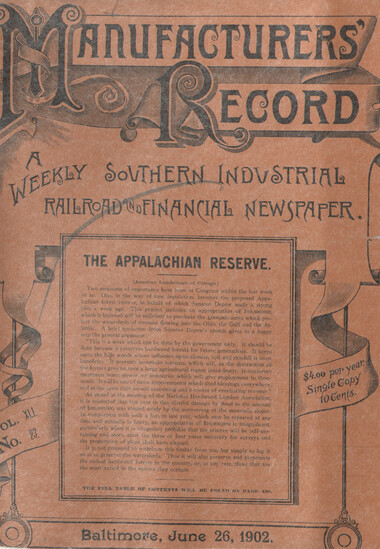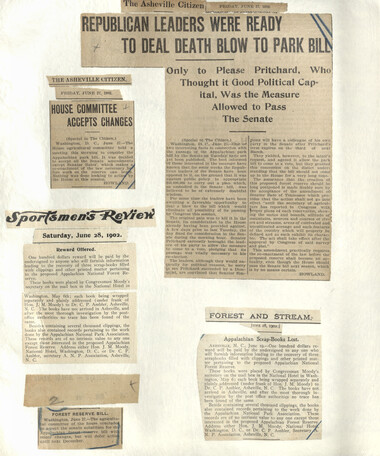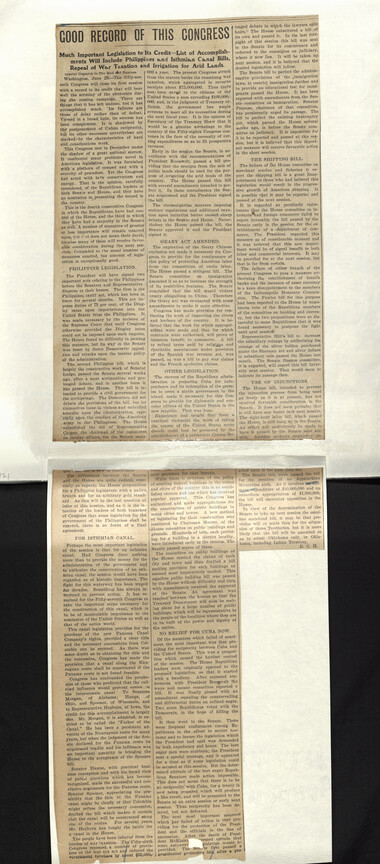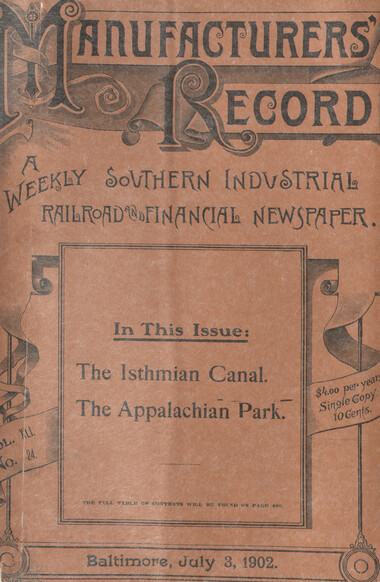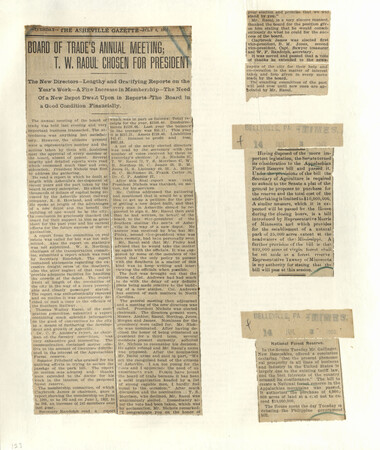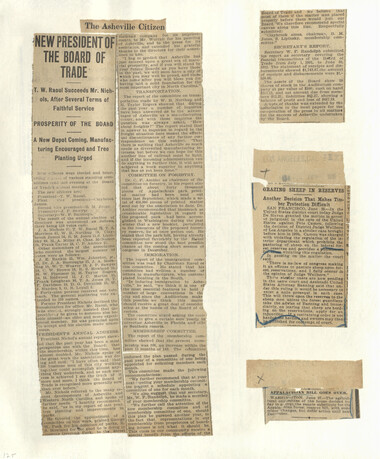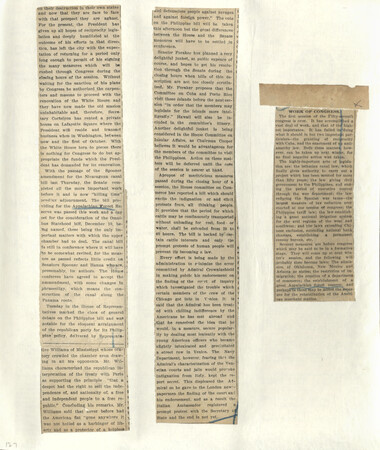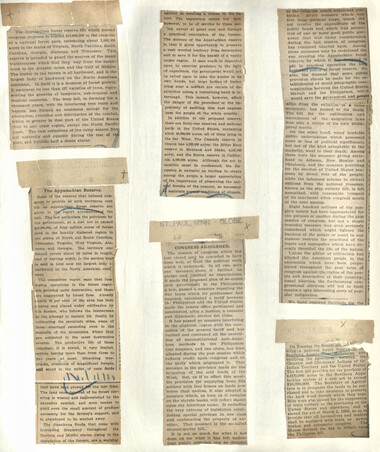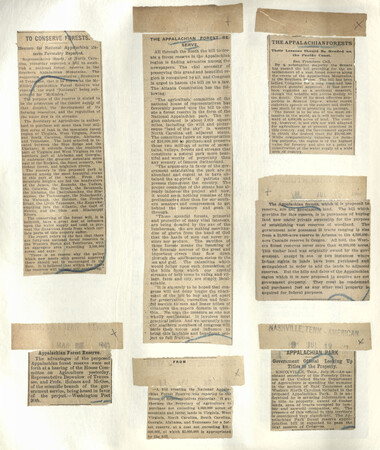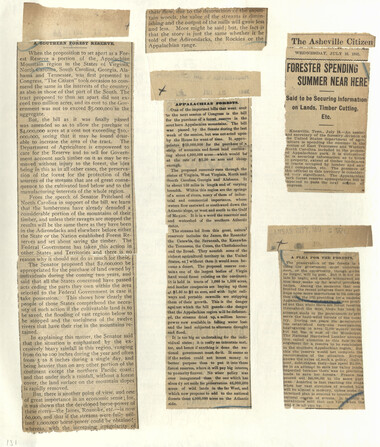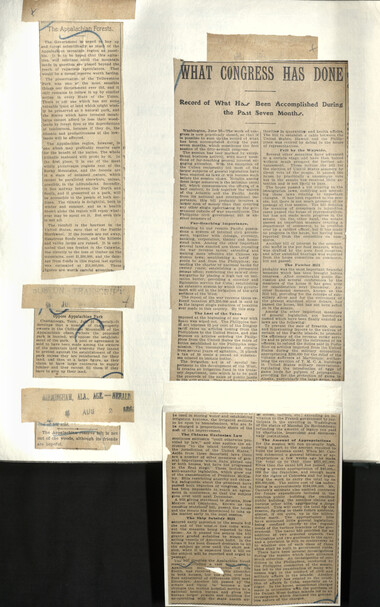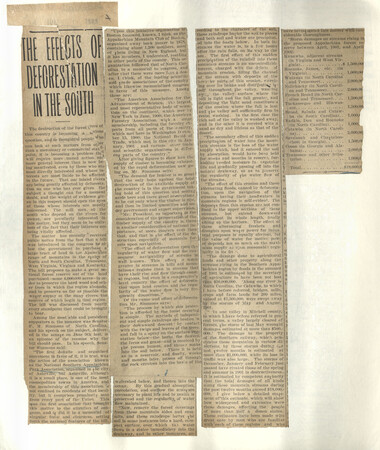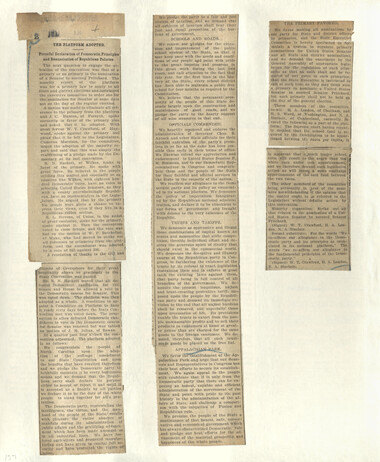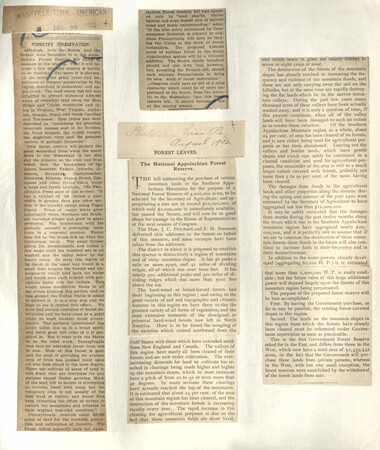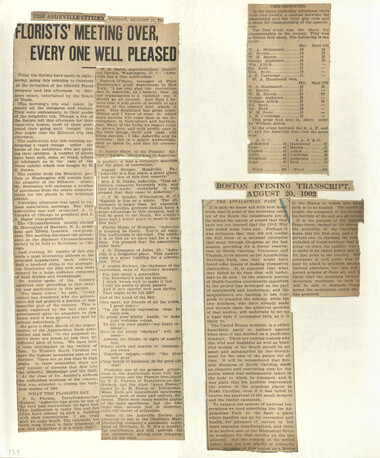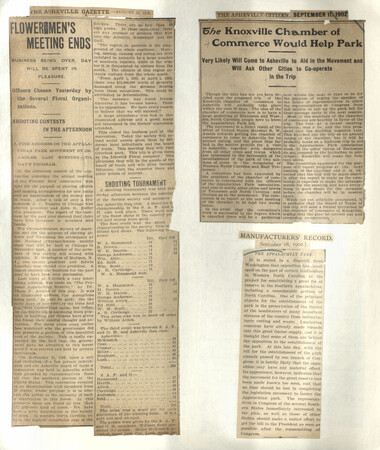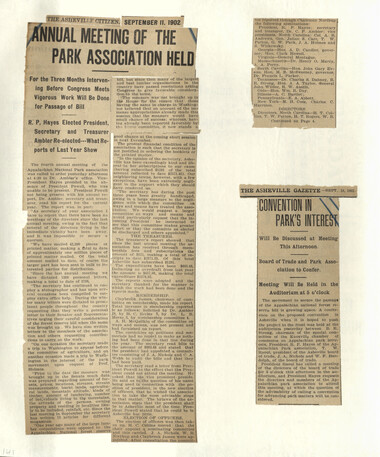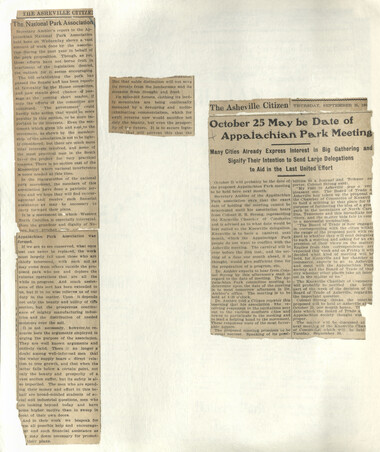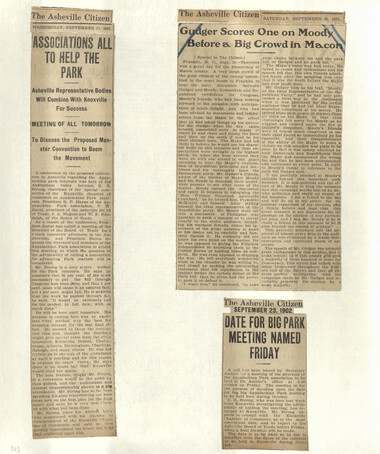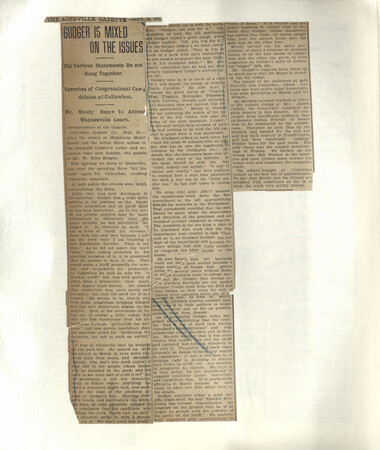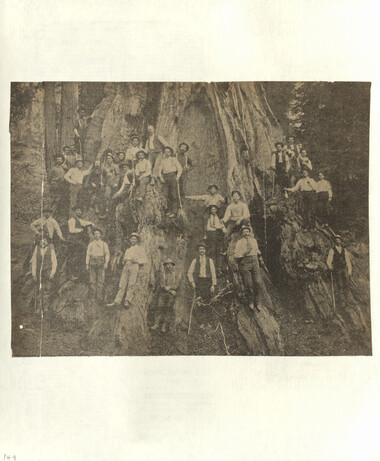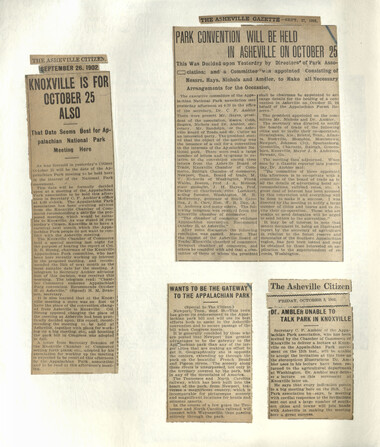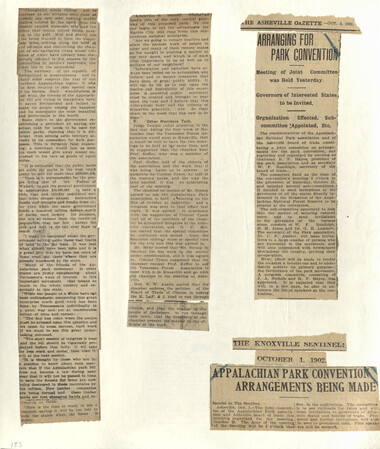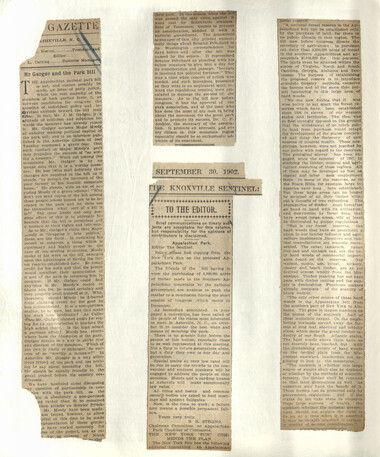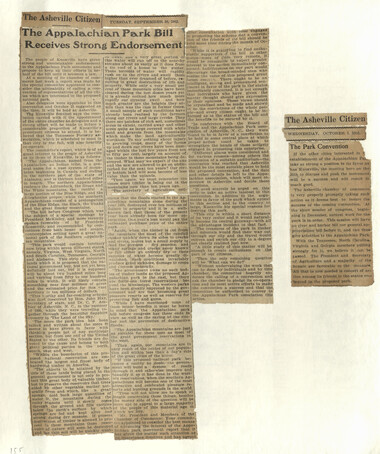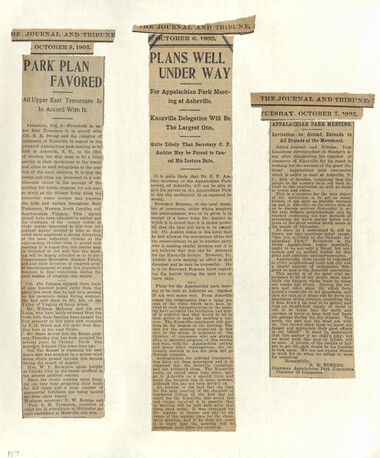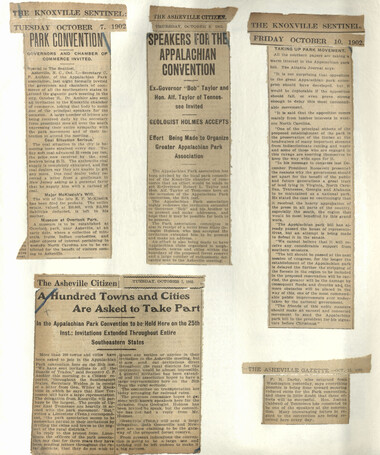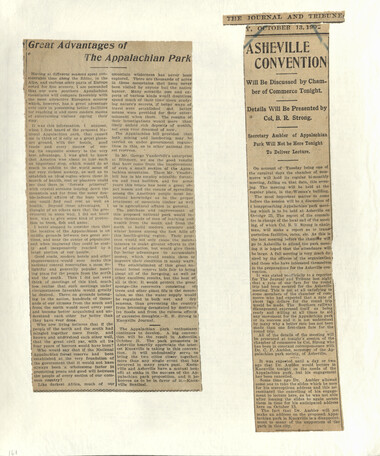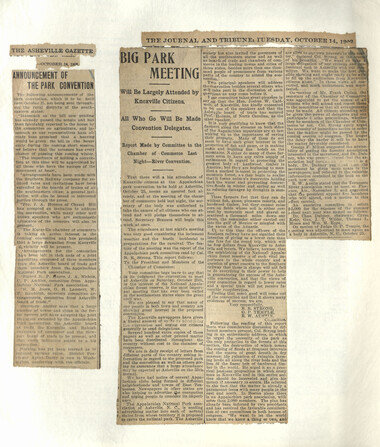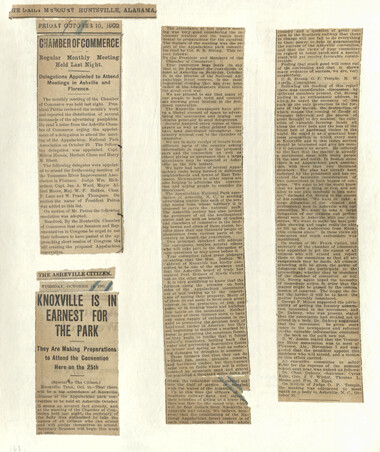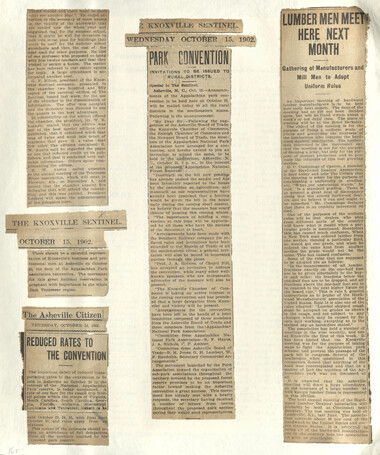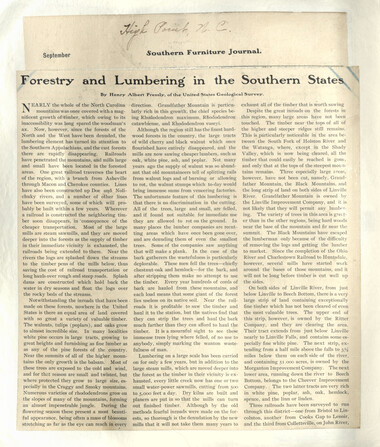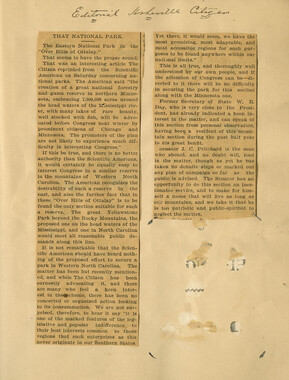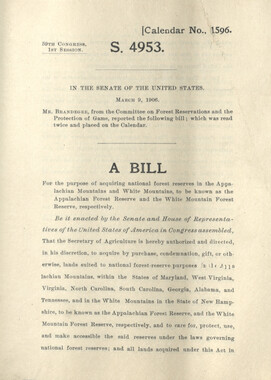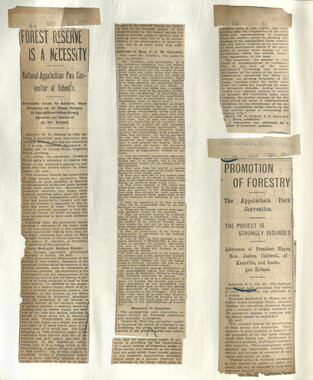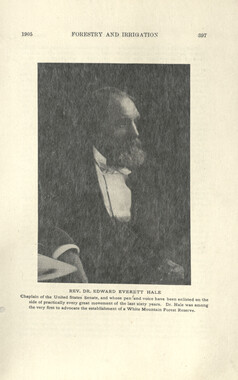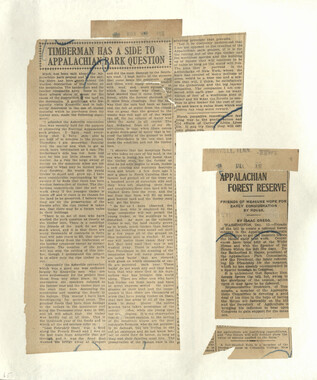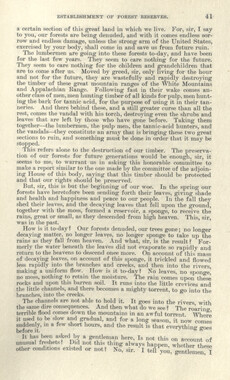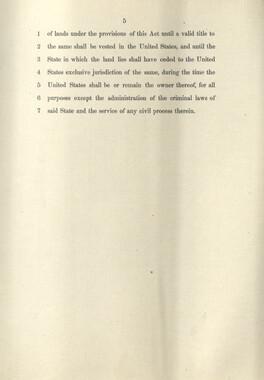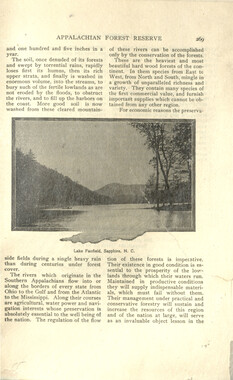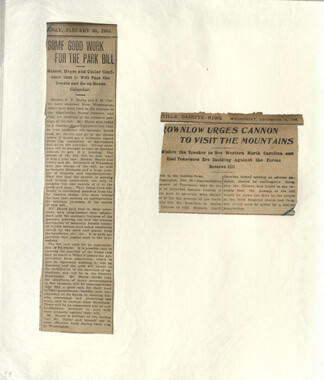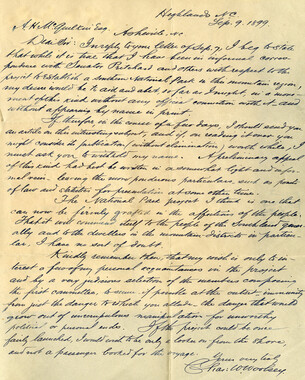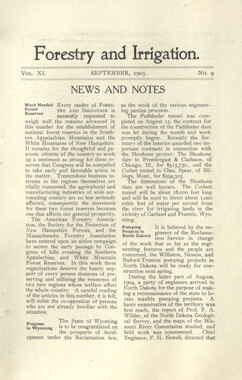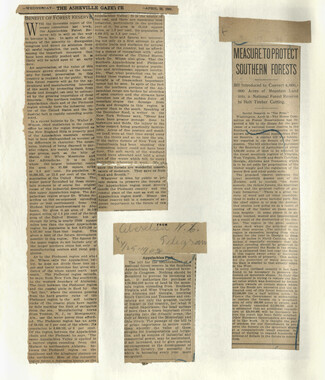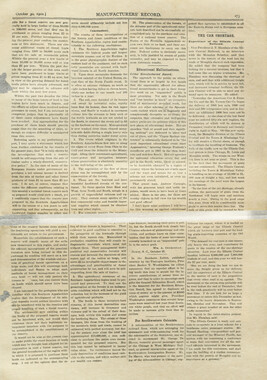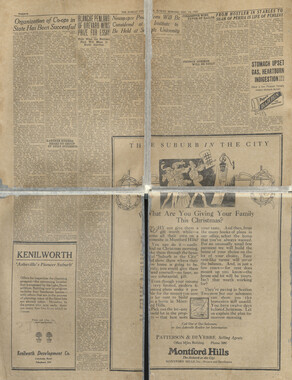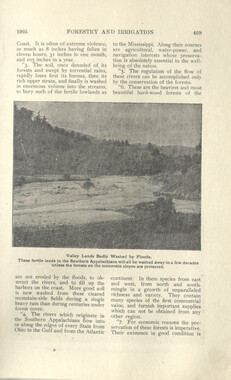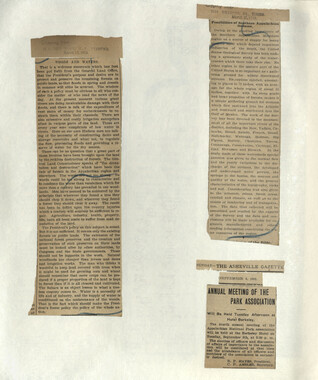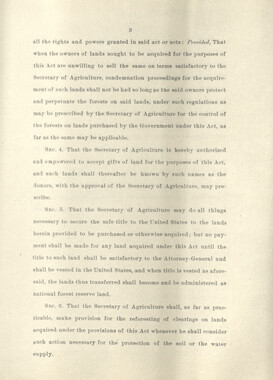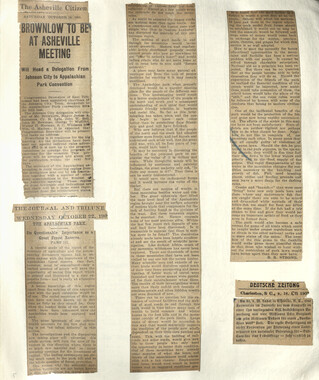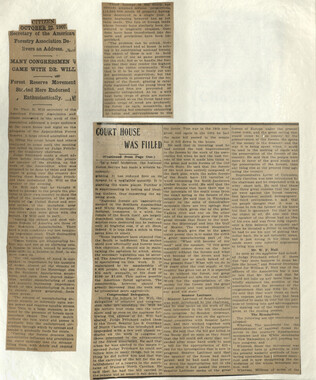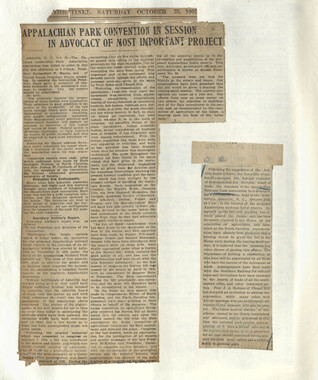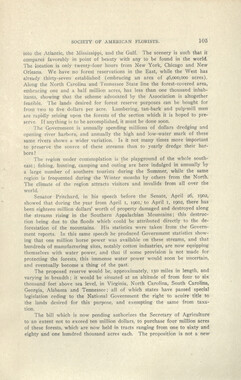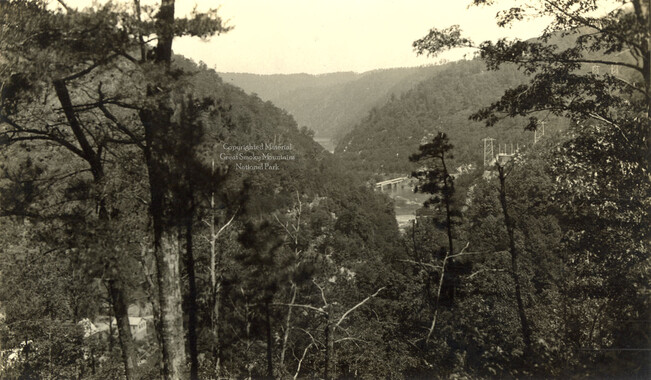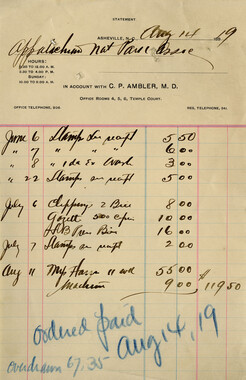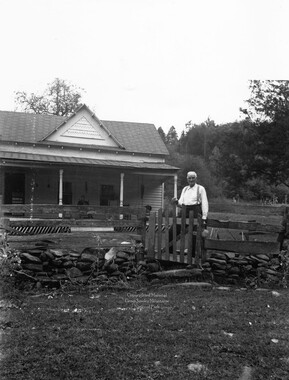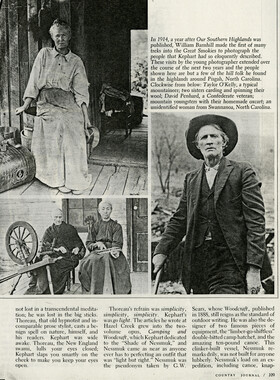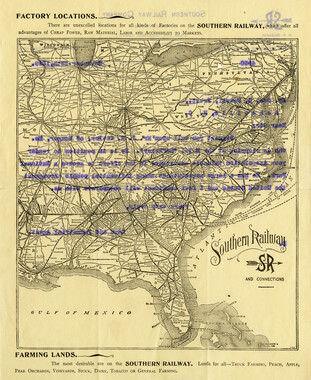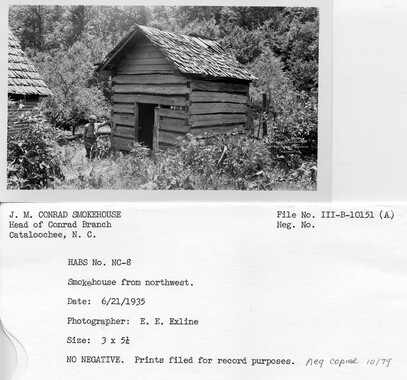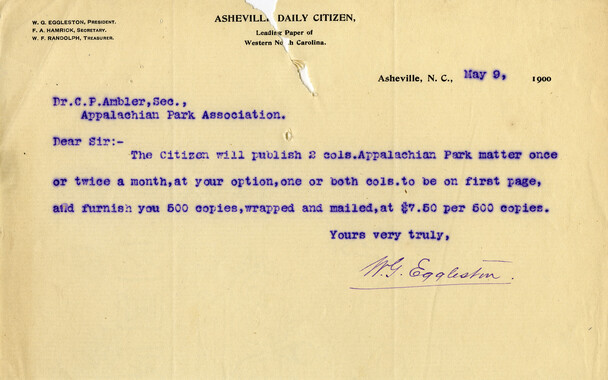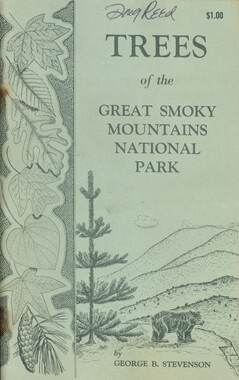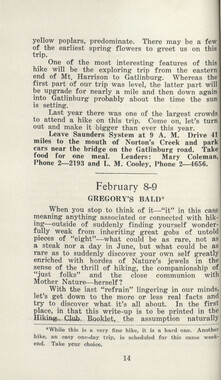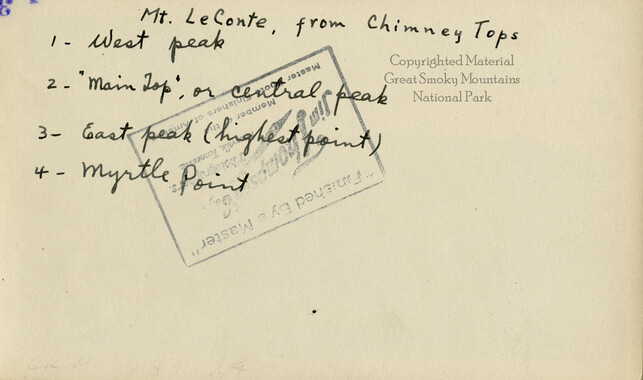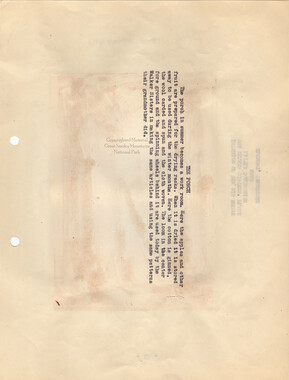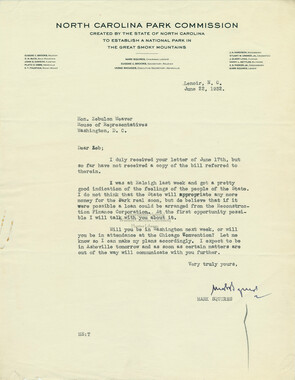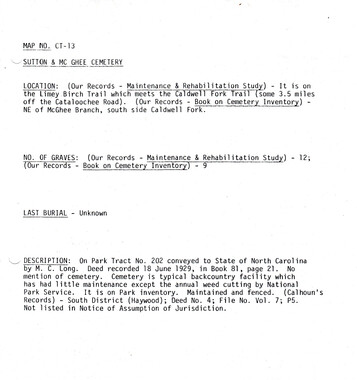Western Carolina University (20)
View all
- Canton Champion Fibre Company (2308)
- Cherokee Traditions (293)
- Civil War in Southern Appalachia (165)
- Craft Revival (1942)
- Great Smoky Mountains - A Park for America (2767)
- Highlights from Western Carolina University (430)
- Horace Kephart (941)
- Journeys Through Jackson (154)
- LGBTQIA+ Archive of Jackson County (26)
- Oral Histories of Western North Carolina (314)
- Picturing Appalachia (6772)
- Stories of Mountain Folk (413)
- Travel Western North Carolina (160)
- Western Carolina University Fine Art Museum Vitreograph Collection (129)
- Western Carolina University Herbarium (92)
- Western Carolina University: Making Memories (708)
- Western Carolina University Publications (2283)
- Western Carolina University Restricted Electronic Theses and Dissertations (146)
- Western North Carolina Regional Maps (71)
- World War II in Southern Appalachia (131)
University of North Carolina Asheville (6)
View all
- Appalachian National Park Association (53)
- Berry, Walter (76)
- Champion Fibre Company (5)
- Fromer, Irving Rhodes, 1913-1994 (70)
- Grant, George Alexander, 1891-1964 (96)
- Kephart, Horace, 1862-1931 (23)
- Masa, George, 1881-1933 (17)
- North Carolina Park Commission (105)
- Roth, Albert, 1890-1974 (142)
- Schenck, Carl Alwin, 1868-1955 (1)
- Stearns, I. K. (2)
- Thompson, James Edward, 1880-1976 (45)
- Weaver, Zebulon, 1872-1948 (55)
- Wilburn, Hiram Coleman, 1880-1967 (72)
- Allanstand Cottage Industries (0)
- Bennett, Kelly, 1890-1974 (0)
- Brasstown Carvers (0)
- Cain, Doreyl Ammons (0)
- Carver, George Washington, 1864?-1943 (0)
- Cathey, Joseph, 1803-1874 (0)
- Champion Paper and Fibre Company (0)
- Cherokee Indian Fair Association (0)
- Cherokee Language Program (0)
- Crittenden, Lorraine (0)
- Crowe, Amanda (0)
- Edmonston, Thomas Benton, 1842-1907 (0)
- Ensley, A. L. (Abraham Lincoln), 1865-1948 (0)
- George Butz (BFS 1907) (0)
- Goodrich, Frances Louisa (0)
- Heard, Marian Gladys (0)
- Kephart, Calvin, 1883-1969 (0)
- Kephart, Laura, 1862-1954 (0)
- Laney, Gideon Thomas, 1889-1976 (0)
- McElhinney, William Julian, 1896-1953 (0)
- Niggli, Josephina, 1910-1983 (0)
- Osborne, Kezia Stradley (0)
- Owens, Samuel Robert, 1918-1995 (0)
- Penland Weavers and Potters (0)
- Rhodes, Judy (0)
- Roberts, Vivienne (0)
- Sherrill's Photography Studio (0)
- Smith, Edward Clark (0)
- Southern Highland Handicraft Guild (0)
- Southern Highlanders, Inc. (0)
- Stalcup, Jesse Bryson (0)
- United States. Indian Arts and Crafts Board (0)
- USFS (0)
- Vance, Zebulon Baird, 1830-1894 (0)
- Western Carolina College (0)
- Western Carolina Teachers College (0)
- Western Carolina University (0)
- Western Carolina University. Mountain Heritage Center (0)
- Whitman, Walt, 1819-1892 (0)
- Williams, Isadora (0)
- 1810s (1)
- 1840s (1)
- 1850s (2)
- 1860s (3)
- 1870s (4)
- 1880s (7)
- 1890s (64)
- 1900s (294)
- 1910s (227)
- 1920s (461)
- 1930s (1585)
- 1940s (82)
- 1950s (15)
- 1960s (13)
- 1970s (47)
- 1980s (14)
- 1990s (17)
- 2000s (31)
- 2010s (1)
- 1600s (0)
- 1700s (0)
- 1800s (0)
- 1820s (0)
- 1830s (0)
- 2020s (0)
- Appalachian Region, Southern (80)
- Asheville (N.C.) (1)
- Avery County (N.C.) (6)
- Blount County (Tenn.) (159)
- Buncombe County (N.C.) (204)
- Cherokee County (N.C.) (10)
- Clay County (N.C.) (3)
- Graham County (N.C.) (108)
- Great Smoky Mountains National Park (N.C. and Tenn.) (438)
- Haywood County (N.C.) (263)
- Henderson County (N.C.) (13)
- Jackson County (N.C.) (58)
- Knox County (Tenn.) (21)
- Knoxville (Tenn.) (11)
- Lake Santeetlah (N.C.) (10)
- Macon County (N.C.) (25)
- Madison County (N.C.) (14)
- McDowell County (N.C.) (5)
- Mitchell County (N.C.) (7)
- Polk County (N.C.) (2)
- Qualla Boundary (22)
- Rutherford County (N.C.) (16)
- Swain County (N.C.) (516)
- Transylvania County (N.C.) (36)
- Watauga County (N.C.) (2)
- Waynesville (N.C.) (2)
- Yancey County (N.C.) (34)
- Aerial Views (3)
- Articles (1)
- Artifacts (object Genre) (4)
- Bibliographies (1)
- Clippings (information Artifacts) (77)
- Drawings (visual Works) (174)
- Envelopes (2)
- Financial Records (9)
- Fliers (printed Matter) (34)
- Guidebooks (1)
- Interviews (12)
- Land Surveys (102)
- Letters (correspondence) (219)
- Manuscripts (documents) (91)
- Maps (documents) (86)
- Memorandums (14)
- Minutes (administrative Records) (20)
- Negatives (photographs) (282)
- Newsletters (12)
- Paintings (visual Works) (1)
- Pen And Ink Drawings (1)
- Photographs (1657)
- Portraits (40)
- Postcards (15)
- Publications (documents) (107)
- Scrapbooks (3)
- Sheet Music (1)
- Songs (musical Compositions) (2)
- Sound Recordings (7)
- Speeches (documents) (11)
- Transcripts (46)
- Aerial Photographs (0)
- Albums (books) (0)
- Biography (general Genre) (0)
- Cards (information Artifacts) (0)
- Crafts (art Genres) (0)
- Depictions (visual Works) (0)
- Design Drawings (0)
- Facsimiles (reproductions) (0)
- Fiction (general Genre) (0)
- Glass Plate Negatives (0)
- Internegatives (0)
- Newspapers (0)
- Occupation Currency (0)
- Periodicals (0)
- Personal Narratives (0)
- Plans (maps) (0)
- Poetry (0)
- Programs (documents) (0)
- Questionnaires (0)
- Slides (photographs) (0)
- Specimens (0)
- Text Messages (0)
- Tintypes (photographs) (0)
- Video Recordings (physical Artifacts) (0)
- Vitreographs (0)
- Appalachian National Park Association Records (336)
- Carlos C. Campbell Collection (282)
- Cataloochee History Project (65)
- George Masa Collection (89)
- Hiram C. Wilburn Papers (28)
- Historic Photographs Collection (236)
- Horace Kephart Collection (126)
- Humbard Collection (33)
- Jim Thompson Collection (44)
- Love Family Papers (11)
- Map Collection (12)
- R.A. Romanes Collection (10)
- Smoky Mountains Hiking Club Collection (616)
- Zebulon Weaver Collection (107)
- A.L. Ensley Collection (0)
- Appalachian Industrial School Records (0)
- Axley-Meroney Collection (0)
- Bayard Wootten Photograph Collection (0)
- Bethel Rural Community Organization Collection (0)
- Blumer Collection (0)
- C.W. Slagle Collection (0)
- Canton Area Historical Museum (0)
- Cherokee Studies Collection (0)
- Daisy Dame Photograph Album (0)
- Daniel Boone VI Collection (0)
- Doris Ulmann Photograph Collection (0)
- Elizabeth H. Lasley Collection (0)
- Elizabeth Woolworth Szold Fleharty Collection (0)
- Frank Fry Collection (0)
- Gideon Laney Collection (0)
- Hazel Scarborough Collection (0)
- Hunter and Weaver Families Collection (0)
- I. D. Blumenthal Collection (0)
- Isadora Williams Collection (0)
- Jesse Bryson Stalcup Collection (0)
- John B. Battle Collection (0)
- John C. Campbell Folk School Records (0)
- John Parris Collection (0)
- Judaculla Rock project (0)
- Kelly Bennett Collection (0)
- Major Wiley Parris Civil War Letters (0)
- McFee-Misemer Civil War Letters (0)
- Mountain Heritage Center Collection (0)
- Norburn - Robertson - Thomson Families Collection (0)
- Pauline Hood Collection (0)
- Pre-Guild Collection (0)
- Qualla Arts and Crafts Mutual Collection (0)
- Rosser H. Taylor Collection (0)
- Samuel Robert Owens Collection (0)
- Sara Madison Collection (0)
- Sherrill Studio Photo Collection (0)
- Stories of Mountain Folk - Radio Programs (0)
- The Reporter, Western Carolina University (0)
- Venoy and Elizabeth Reed Collection (0)
- WCU Gender and Sexuality Oral History Project (0)
- WCU Mountain Heritage Center Oral Histories (0)
- WCU Oral History Collection - Mountain People, Mountain Lives (0)
- WCU Students Newspapers Collection (0)
- Western North Carolina Tomorrow Black Oral History Project (0)
- William Williams Stringfield Collection (0)
- Appalachian Trail (22)
- Church buildings (9)
- Civilian Conservation Corps (U.S.) (91)
- Dams (21)
- Floods (1)
- Forest conservation (11)
- Forests and forestry (42)
- Great Smoky Mountains National Park (N.C. and Tenn.) (82)
- Hunting (2)
- Logging (25)
- Maps (74)
- North Carolina -- Maps (5)
- Postcards (15)
- Railroad trains (8)
- Sports (4)
- Storytelling (2)
- Waterfalls -- Great Smoky Mountains (N.C. and Tenn.) (39)
- African Americans (0)
- Artisans (0)
- Cherokee art (0)
- Cherokee artists -- North Carolina (0)
- Cherokee language (0)
- Cherokee pottery (0)
- Cherokee women (0)
- College student newspapers and periodicals (0)
- Dance (0)
- Education (0)
- Folk music (0)
- Forced removal, 1813-1903 (0)
- Gender nonconformity (0)
- Landscape photography (0)
- Mines and mineral resources (0)
- Paper industry (0)
- Pottery (0)
- Rural electrification -- North Carolina, Western (0)
- School integration -- Southern States (0)
- Segregation -- North Carolina, Western (0)
- Slavery (0)
- Weaving -- Appalachian Region, Southern (0)
- Wood-carving -- Appalachian Region, Southern (0)
- World War, 1939-1945 (0)
- Sound (7)
- StillImage (2172)
- Text (655)
- MovingImage (0)
Appalachian National Park Association Newspaper Clippings, 1899-1902
Item
Item’s are ‘child’ level descriptions to ‘parent’ objects, (e.g. one page of a whole book).
-
-
V MB. DEPEW IN HIGH ^>IRITS. COMPLIMENTED ON HIS FOREST RESERVE BPEECH—GOING ABROAD FOR THE SUMMER. [BY TELEGRAPH TO THE TRIBUNE.] Washington, June 7.—Senator Depew was in un- | usually high spirits to-day after his speech on the Forestry Reserve bill, which is regarded as the moat attractive address he has yet made in the Senate. The particular cause of his glee was two- j fold. First, he received a note from Senator Frye, president pro tern, of the Senate, telling him that it was by far the best speech of this session, and, second, it marked the close of his work in the Senate' until Congress reassembles next December. On Monday he leaves Washington with Mrs. Depew for New-York, where they will take a steamer for Europe on June 11 and remain all summer. The Senator explained that he would not have sailed for Europe at so early a date had it not been that four months ago he engaged passage for himself and Mrs. Depew on the, steamer that leaves New- York on Wednesday, . , "It came about in this way," he said to a repre- ' sentative of The Tribune. "Last February I prom- ' lsed Mrs. Depew to take her back to Europe this summer. Until we were married in France last December and came to America Mrs. Depew had never been away from her mother one whole week In her life. Naturally she Is homesick, and we shall to direct to Paris, where her mother resides. I o not know whether we shall attend the coronation at London, though it is possible we may cross ! the Channel for a day or two to witness the great i show in the British metropolis. The Republican l Steering Committee of the Senate Is responsible for I our early departure. It came about in this way: ; When we decided last February to go to Europe | this summer, I asked Allison and other members ' I of the Steering Committee what time Congress would adjourn. They assured me that they could guarantee the business of the session would be brought to a close by June 10. Believing they knew all about It, I immediately engaged passage for Mrs. Depew and myself to sail on June 11. When, a few weeks ago, it became evident that Congress would not be ready to adjourn June 10, I tried to make arrangements with the steamship people to f',o on another boat, but as travel across the At- antic is so heavy at present they were, unable to accommodate me. So if we do not go on the 11th there is no telling what time we could get awn v. However, the most important work of the session ] Is disposed of, and as I am paired with a Democrat J on everything of Importance to be voted on from now on my absence will cut no figure" now on my absence will cut no figure/' See .idly taken his seat after hla speech this afternoon before he received the iwlng note from Senator Frye, which, he says more highly than any Other compllmen, that could have been paid him: ^F i valuable and suggesti' speech 1 bavi heard at this session. FRYE." COAL STRIKE COMMISSION Resolution Before Board of Trade & Transportation to Be Voted Upon Tomorrow. New fork, .lime 8,—There is much interest among members of the Board of Trade & Transportation in the regular meeting to Be held tomorrow because of resolutions thai are to be introduced with reference to the coal slrike. The resolutions call upon President Roosevelt in appoint a commission in order to secure a settlement of the controversy. A report will also be received in favor nf Senate and House hills to create aJ national forest reserve in the southern Appalachian Mountains. The amenHHRrt to the rules increasing the annual dues to $25 will come up for n vole, This will he the last meetv ing until October/ ^^r" ys, ■ni iveV THE APPALACHIAN FORESTS. The speech which Mr. Depew delivered in the Senate yesterday on the bill to establish a national forest reservation In the Southern Appalachian Mountains ought to have the practical effect of gaining abundant support In Congress for that important project. It is a clear and Instructive rehearsal of the general truths concerning the relation of forests to -water supply, and consequently to the prosperity of surrounding regions, and a convincing presentation of the particular reasons for putting the ■wooded slopes within the territory to which this measure applies under federal protection. As a citizen of New-York Mr. Depew is familiar •with forest history in this State. He knows what enormous losses have been sustained here through long devastation of the Adirondacks; how difficult it was to arouse the public mind to a sense of the harm already done and the calamity which was threatened, and how thoroughly the policy of preserving our wooded domain which is now embodied in the constitution is sustained by the people. Thus acquainted with what was sacrificed for many years and what has since been gained in his own State, the Senator effectively pleads for a measure which would he of incalculable benefit to other commonwealths and indirectly to the whole country. The task of preserving the Appalachian forests cannot be left to the localities immediately concerned, for obvious reasons. They lie in half a dozen States, which could not be expected to act in concert, and one or more of which would necessarily refuse to undertake an enterprise from which the others held aloof. It is necessary, therefore, that the national resources and authority should be invoked for the purpose. The bill provides for the purchase at a comparatively trivial price of about four million acres, most of which Is still held In large parcels and can be readily acquired, while any considerable delay would be unfortunate. Already at many points In this great tract lumbermen are busy and destructive. Their operations, if unchecked, are sure to be carried on more and more extensively, and to effect in no long time a deplorable transformation. Owing to its natural characteristics Un- region is peculiarly liable to, the processes of | ] deterioration which everywhere follow the reckless destruction of standing timber. The slopes are steep, and if the vast sponge which nature has been forming there for thousands of years, which absorbs an extraordinarily heavy rainfall and dispenses it as it is needed to the dependent lands below, should ever be left unprotected, it would be swept away and the surrounding country would be hopelessly exposed to alternate drouths and floods. The United States has been slow to learn the truths concerning forest economy which the Old World learned long ago and has since applied with infinite care. Sooner or later we must in any case begin the slow and costly process of reforesting which European countries are em- i ploying for their salvation, and it is an infinite I pity that the work of devastation should nevertheless be going on in contemptuous disregard of that approaching necessity. It is not strange that generation after generation took no thought of the future. Originally the nation's forest wealth was so immense that it appeared limitless, and the settler in a new region who made a clearing had substantial claims to be regarded as a public benefactor. That era ended long ago, but the fact was not discovered until irreparable mischief had been done. Fortunately, however, when an intelligent understanding of the facts had once been formed it was readily dr" •' ma. SUNDAY, JUNE 8, 1902. communicated, and a policy or ioresc preswiu- tion, too long delayed and still much too narrow and hesitating, has been adopted not merely by various States, but by the federal government. In the West extensive ureas have been brought under national protection, with the approval of the people, and there is no reason to doubt that they would commend the prompt passage by Congress of the Appalachian preserve bill. The President has formally advocated it, the Senate committee to which it was referred has unanimously reported in its favor, and there is no answer to tbe arguments in its support which are contained in the speech of Mr. Depew, copiously quoted on another page this morning. ASjSHf FOR ARBITRATION. Board of Trade and Transportation Ask1 the President to Aid in Settling Coal Strike. A meet Ing of the New York Board ot Trade and Transportation was held this nie in the rooms at 2flS Broadway, Manhattan, at which resolutions were adopted, requesting President Koosevelt to appoint a commission with power first to arbitrate the questions involved, and, that falling, to make an investigation of the causes of the present strike in the anthracite coal' regions, as the only method of settling the same. President Oscar S. Straus called the meeting to order at 12:25 o'clock, at which time about forty members were present. The president announced that the meeting would be the last until October lohn D. Kernan, who was a member of the j commission appointed by President Cleveland | to settle and investigate the Chicago strike, had a seat beside Mr. Straus. Chairman Martin of the Committee on Forestry presented an exhaustive report on the proposed new national forest preserve In the Southern Appalachian Mountains So>tr, 21
Object
Object’s are ‘parent’ level descriptions to ‘children’ items, (e.g. a book with pages).
-
This is one of two notebooks assembled by the Appalachian National Park Association that includes documents and news clipping about the organization. The Appalachian National Park Association was formed in 1899 for the purpose of promoting the idea of a national park in the eastern U.S. Although housed in Asheville, North Carolina, the organization was a multi-state effort, attracting representatives from seven southern states. One of the highlights of the group’s activities was a convention held in 1902 to which 1,500 people attended. The association lobbied Congress for the creation of a park, but with limited success. The association disbanded in 1905.
-
